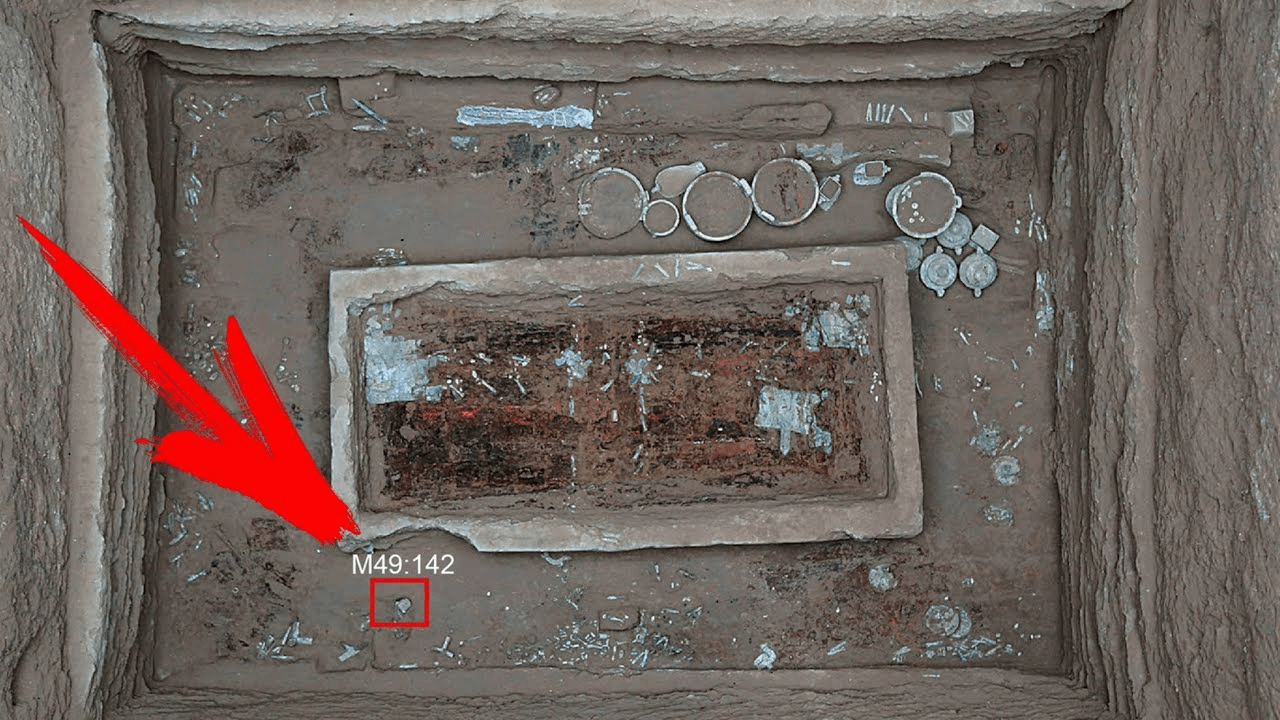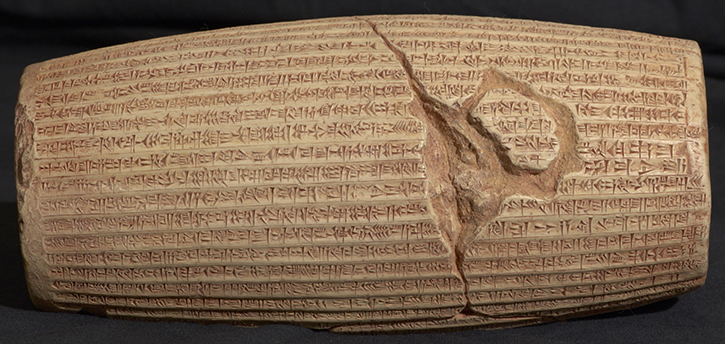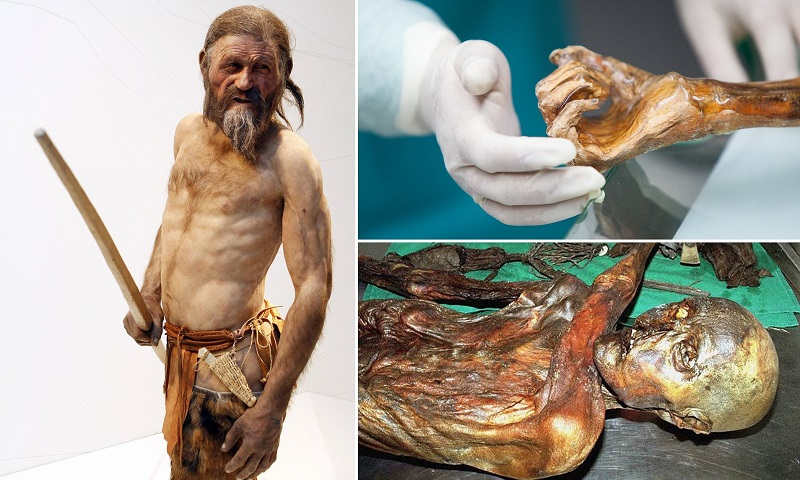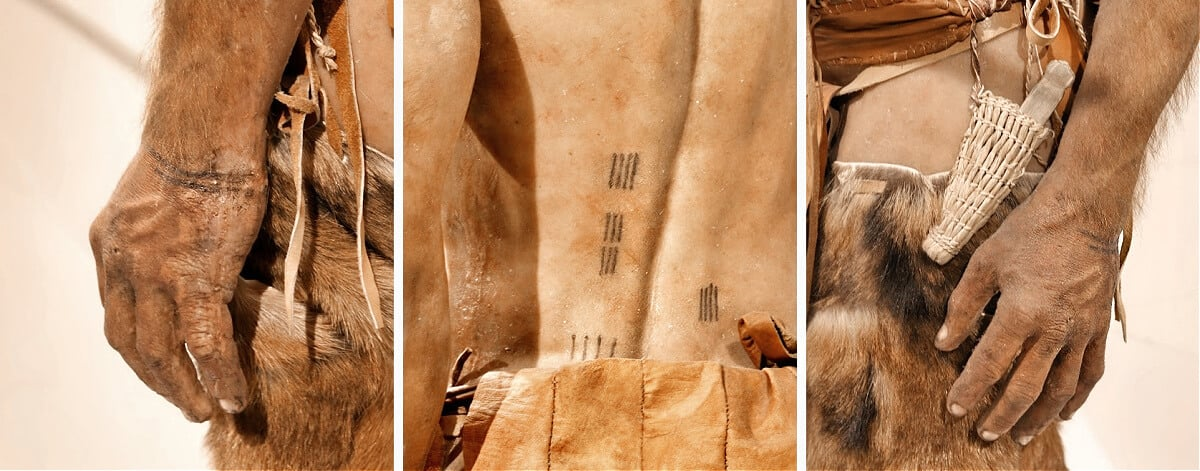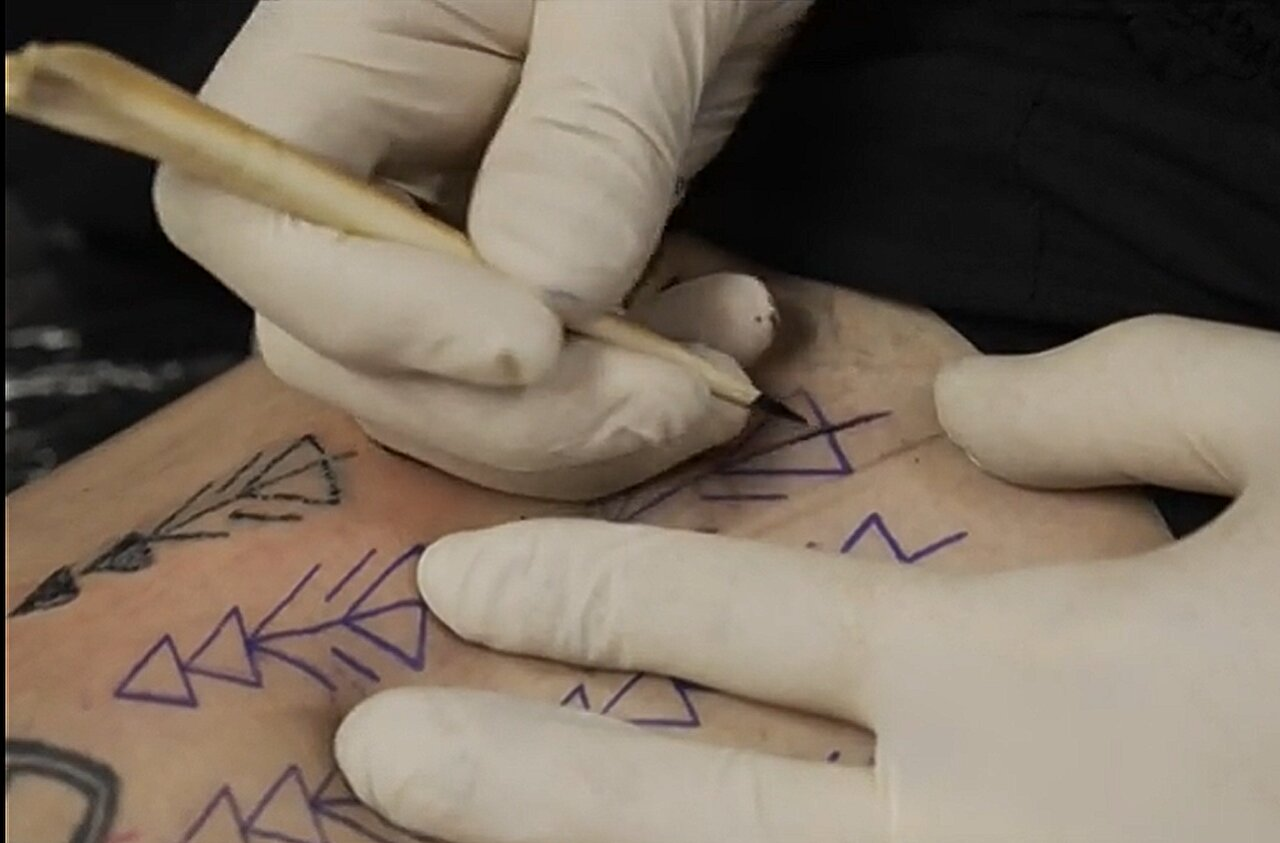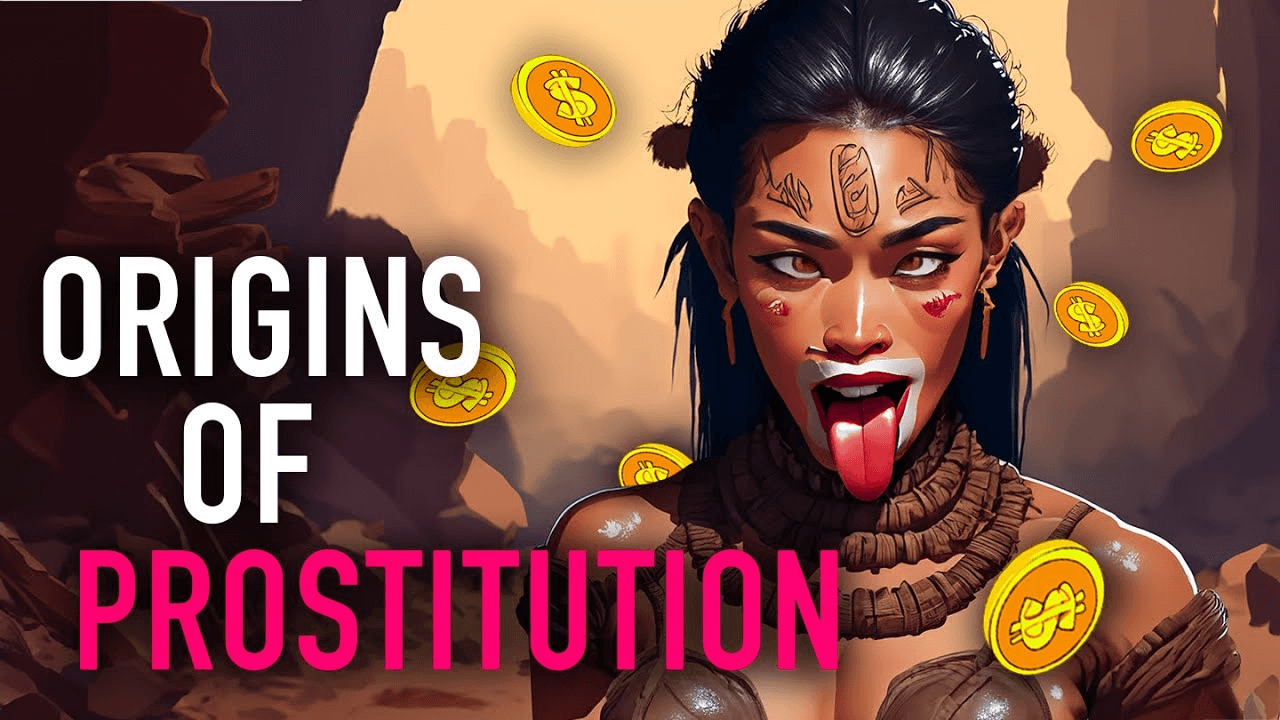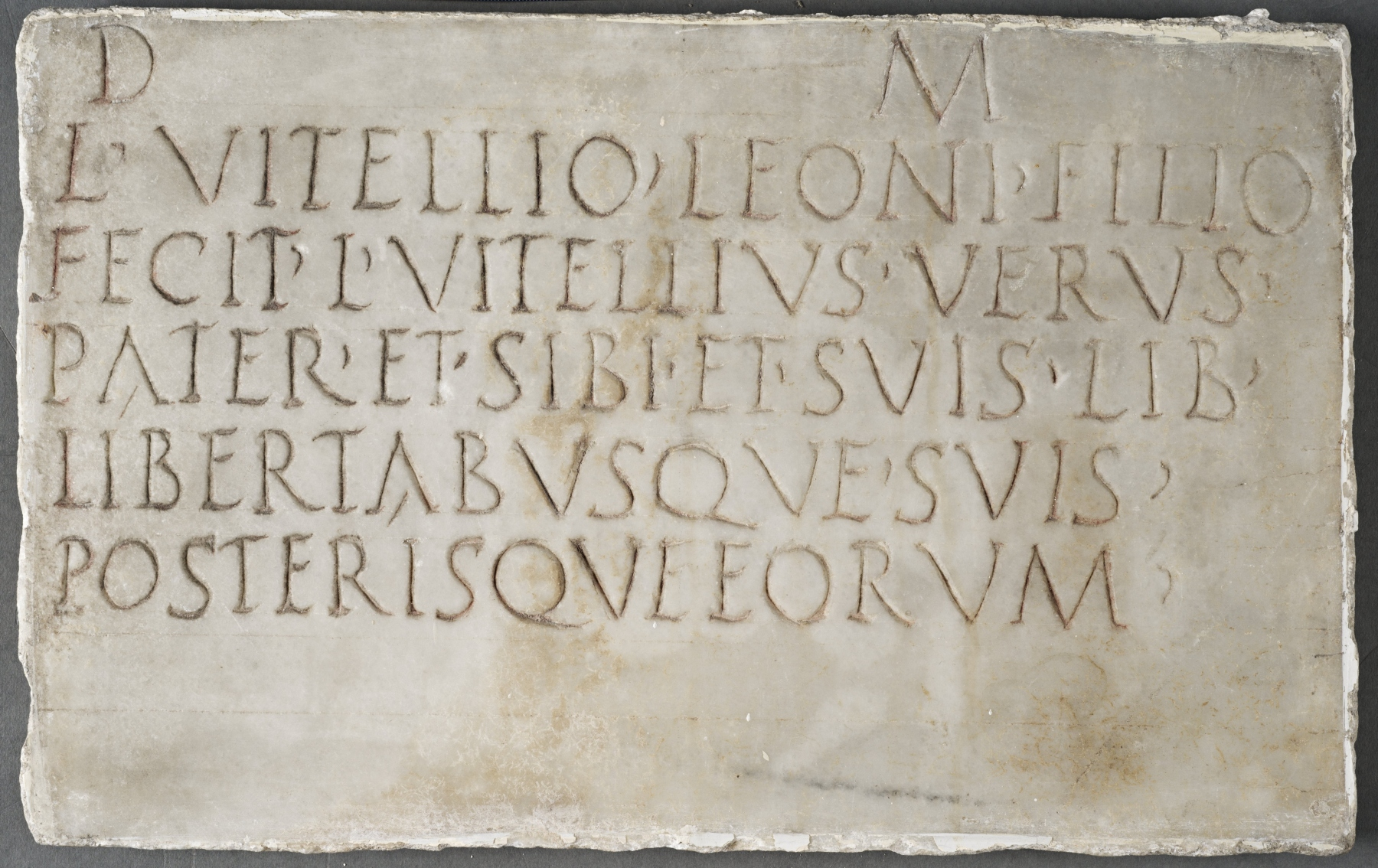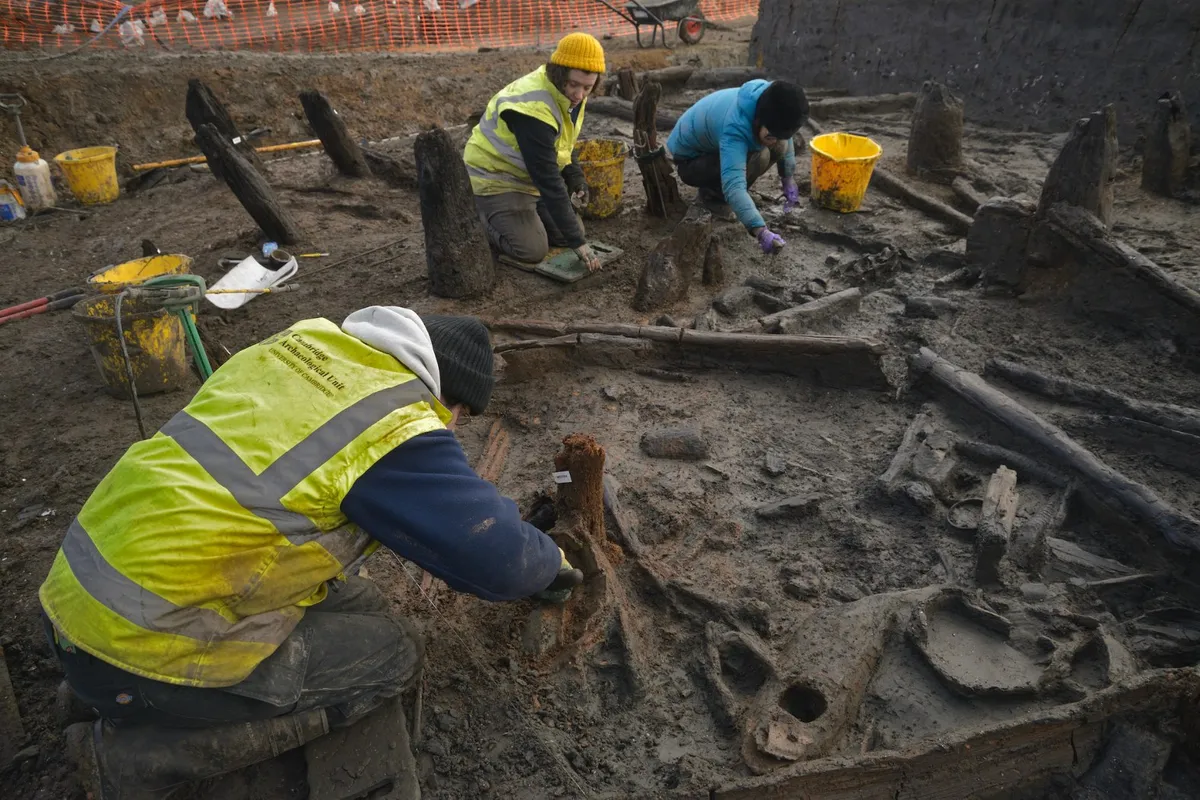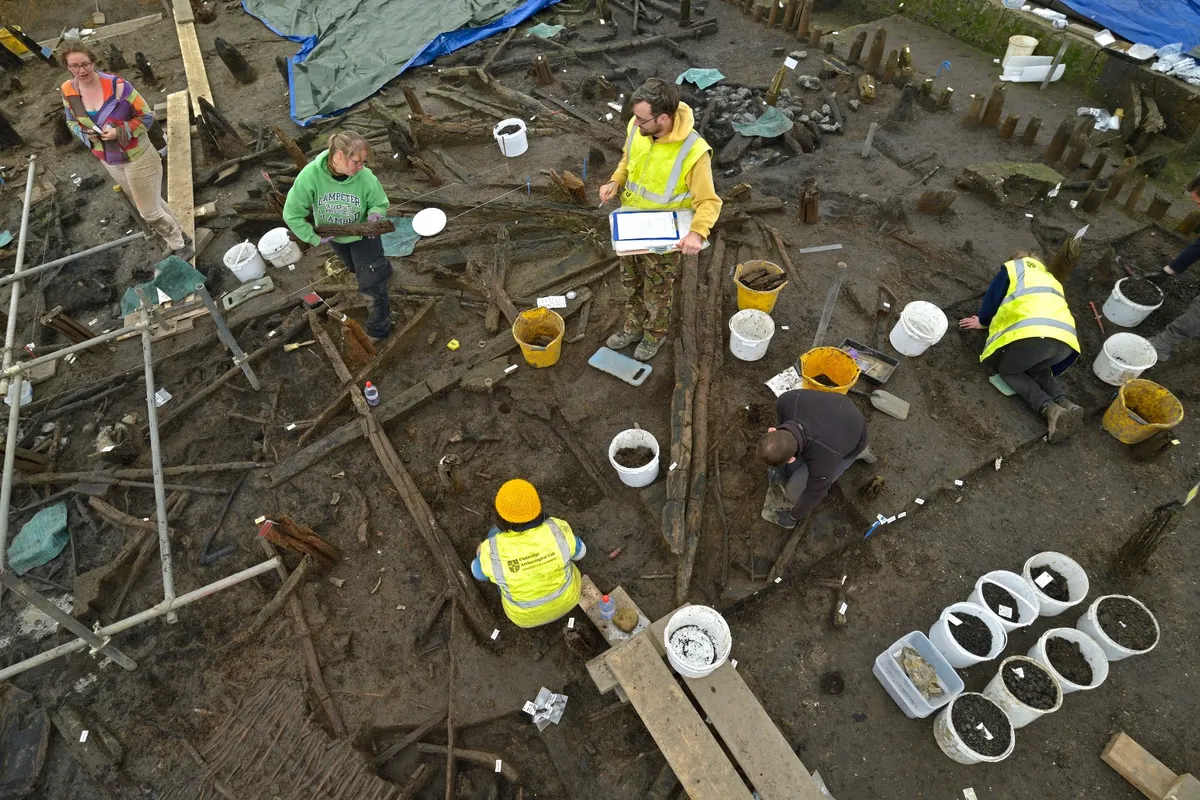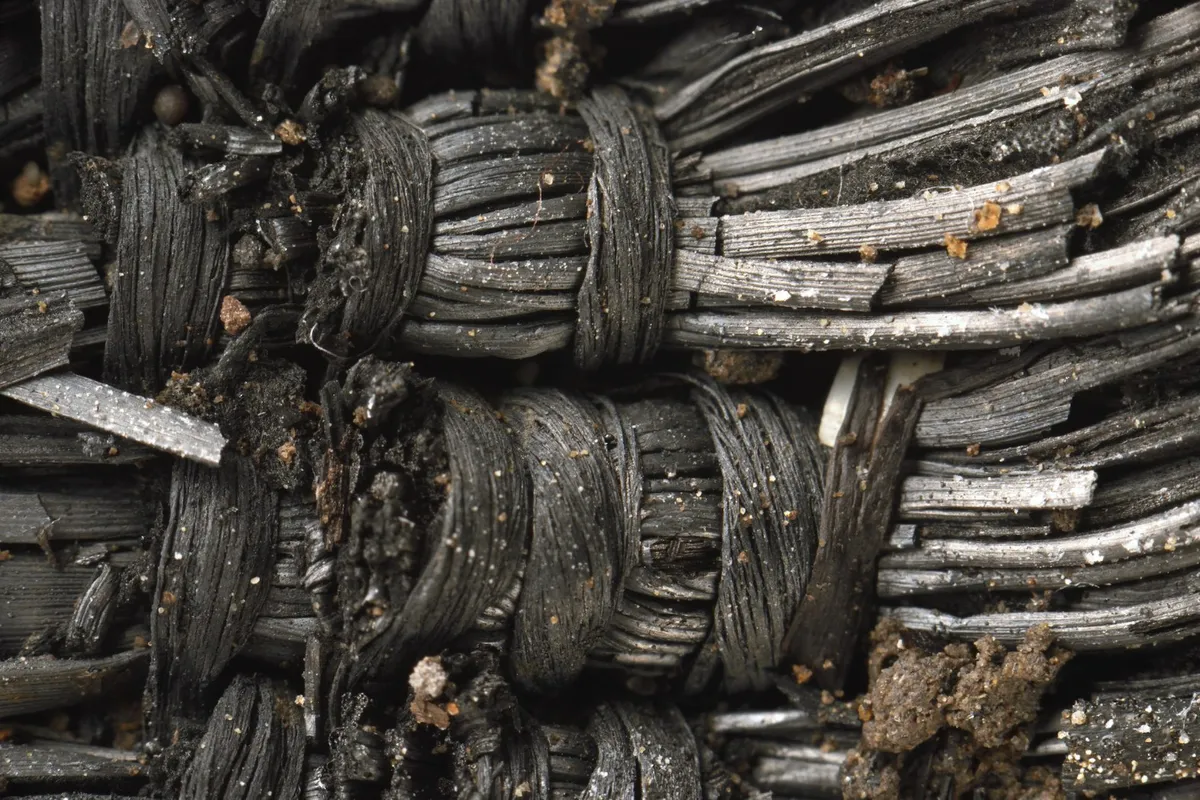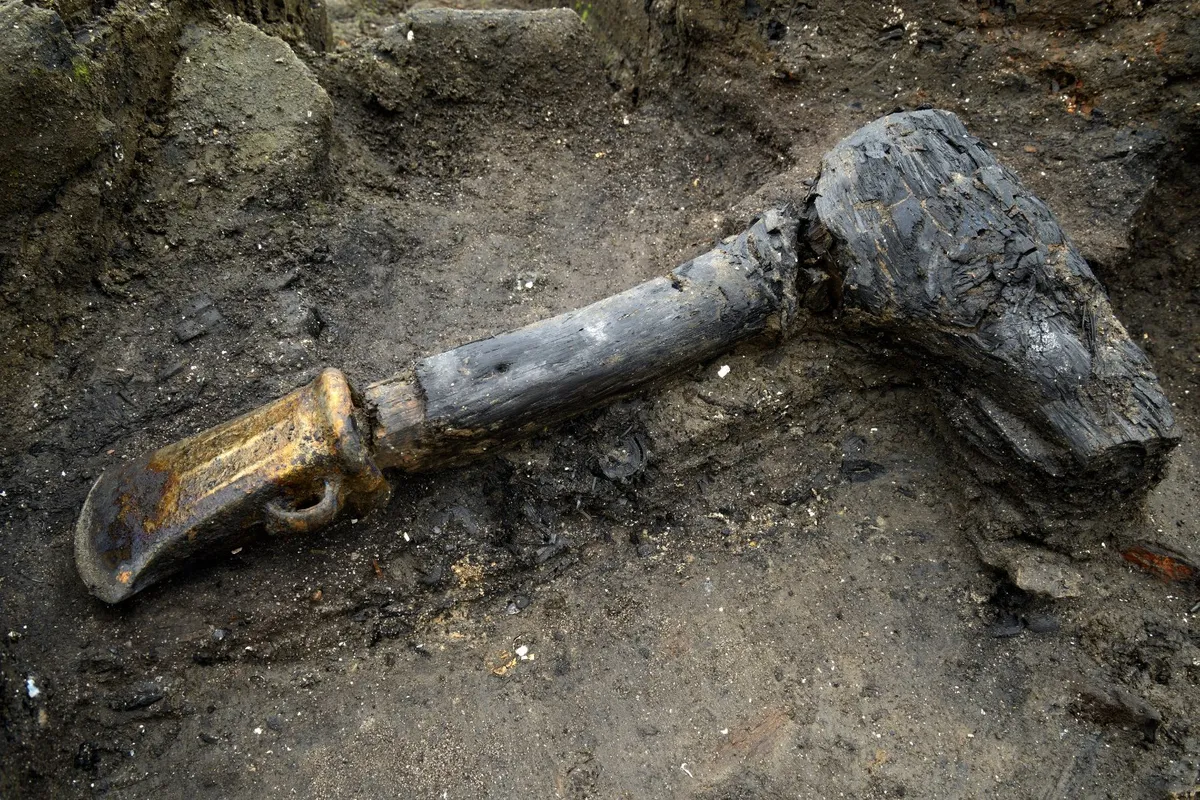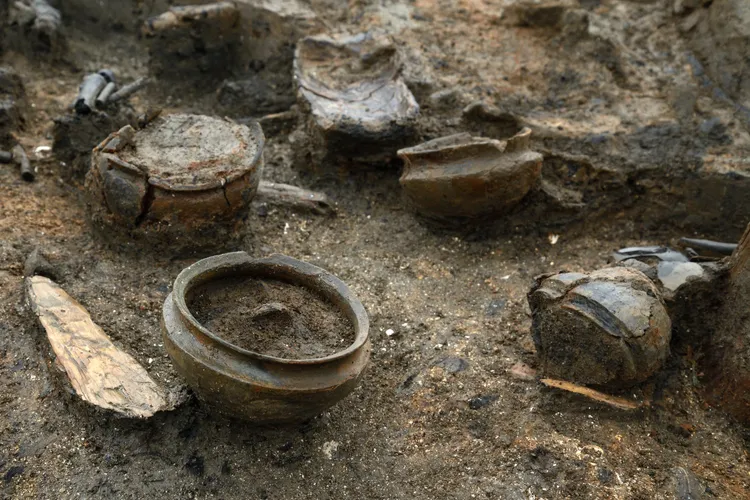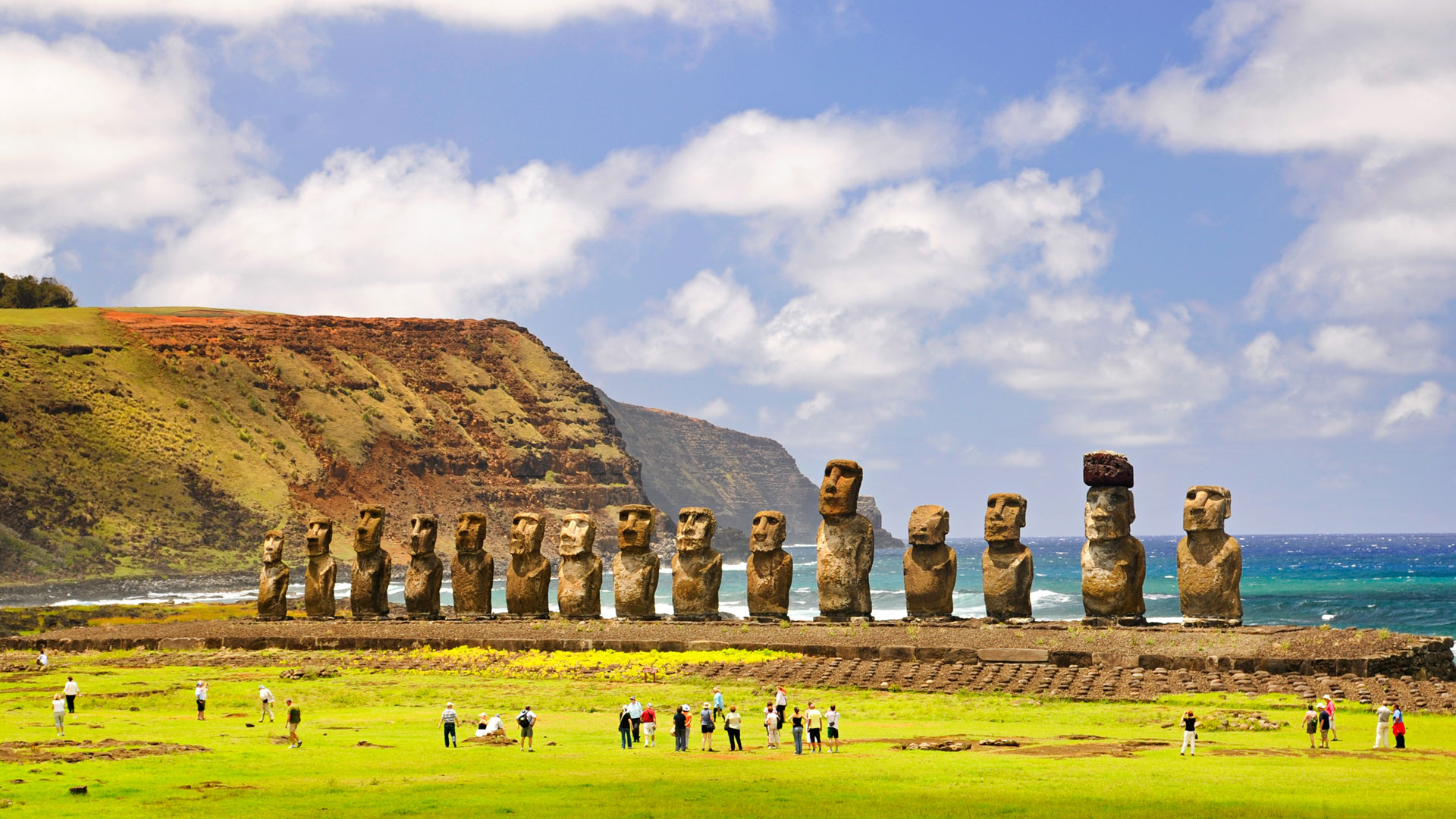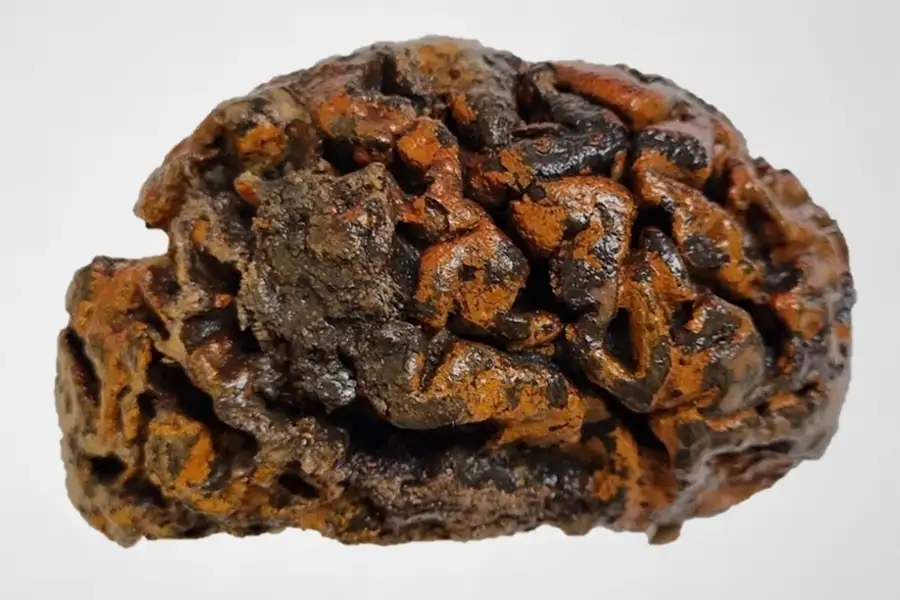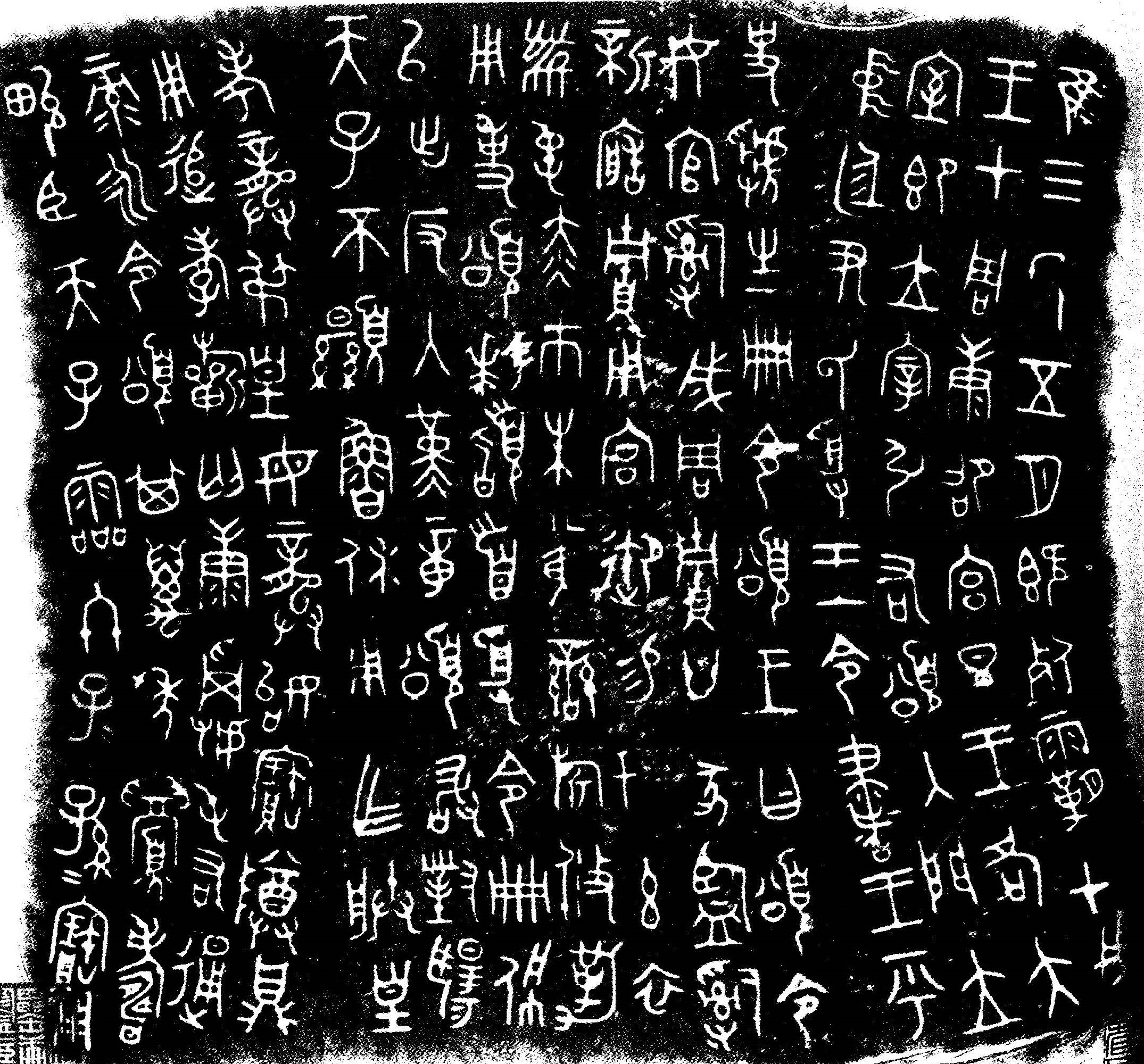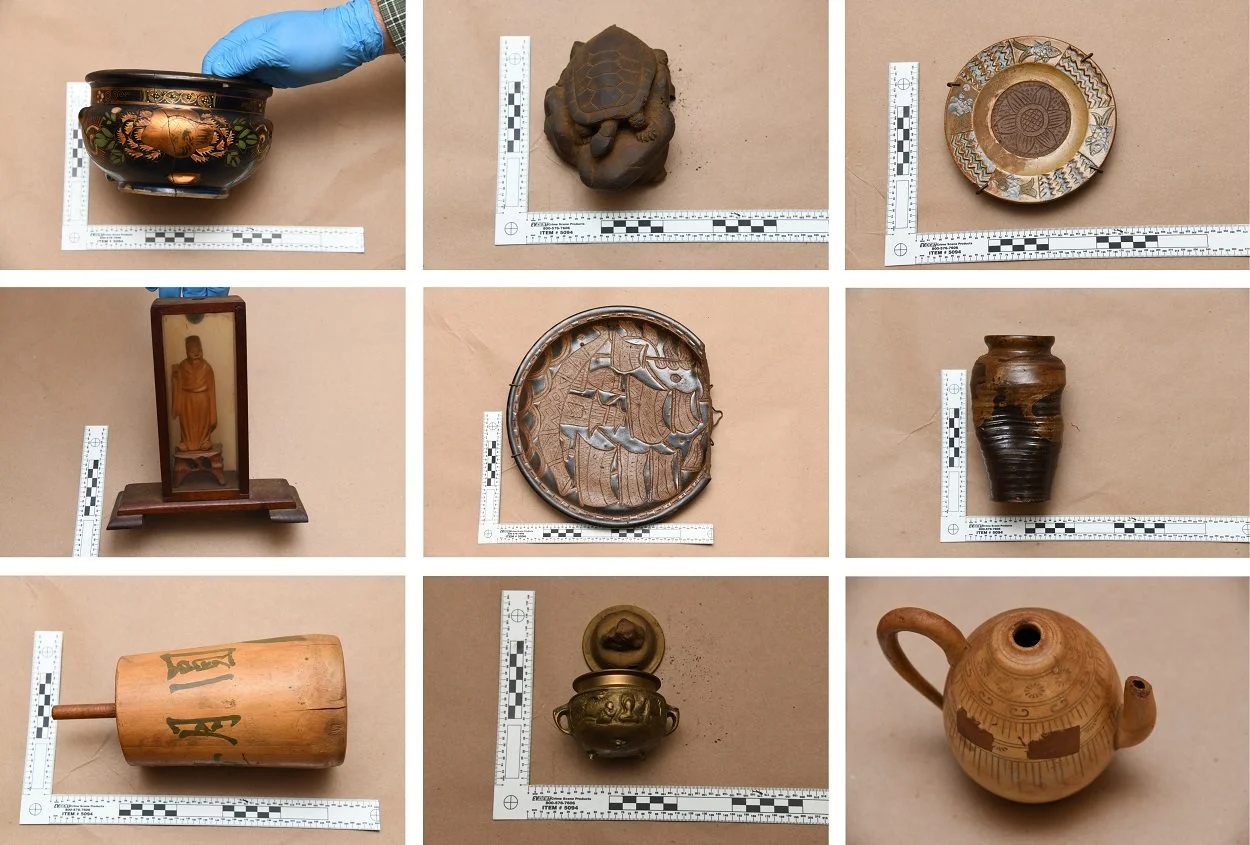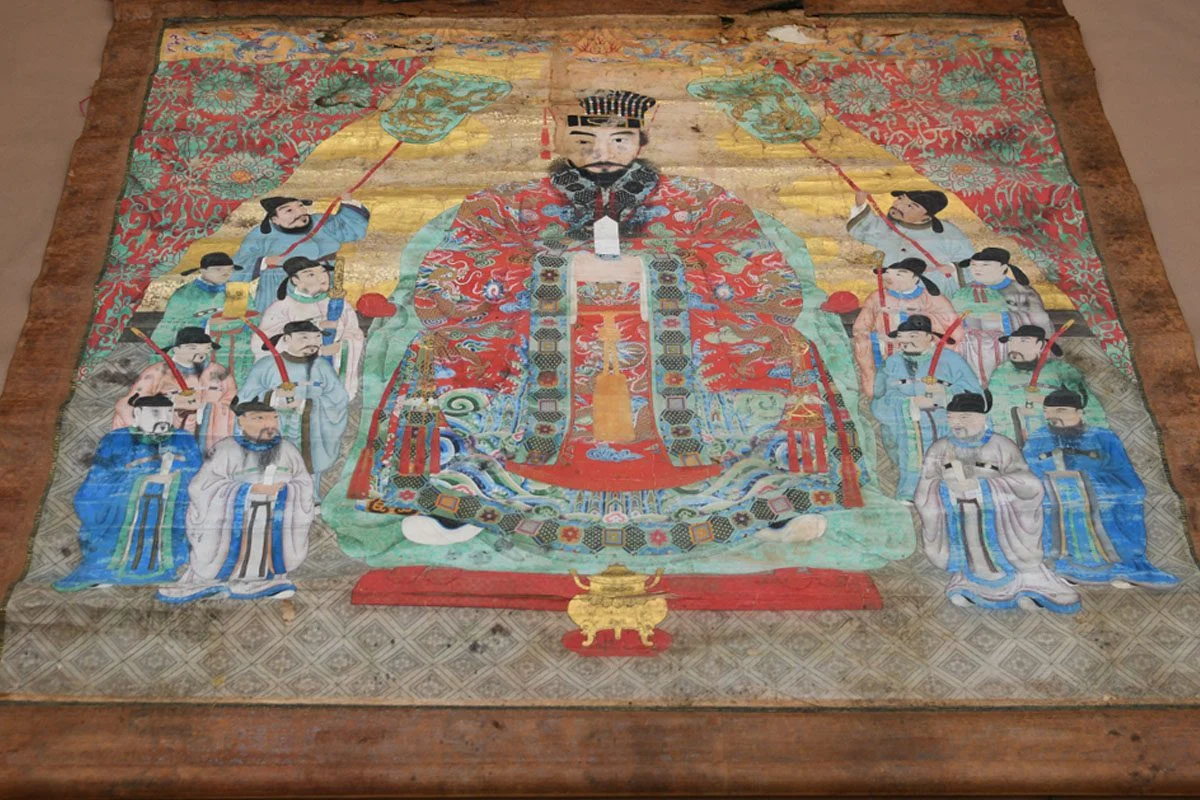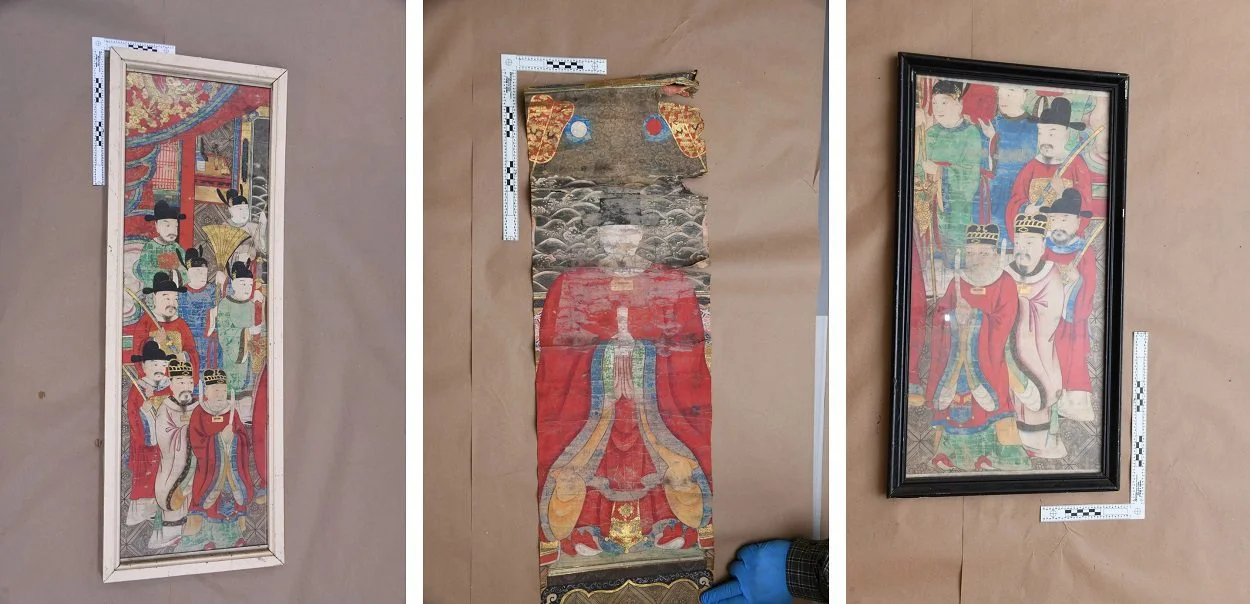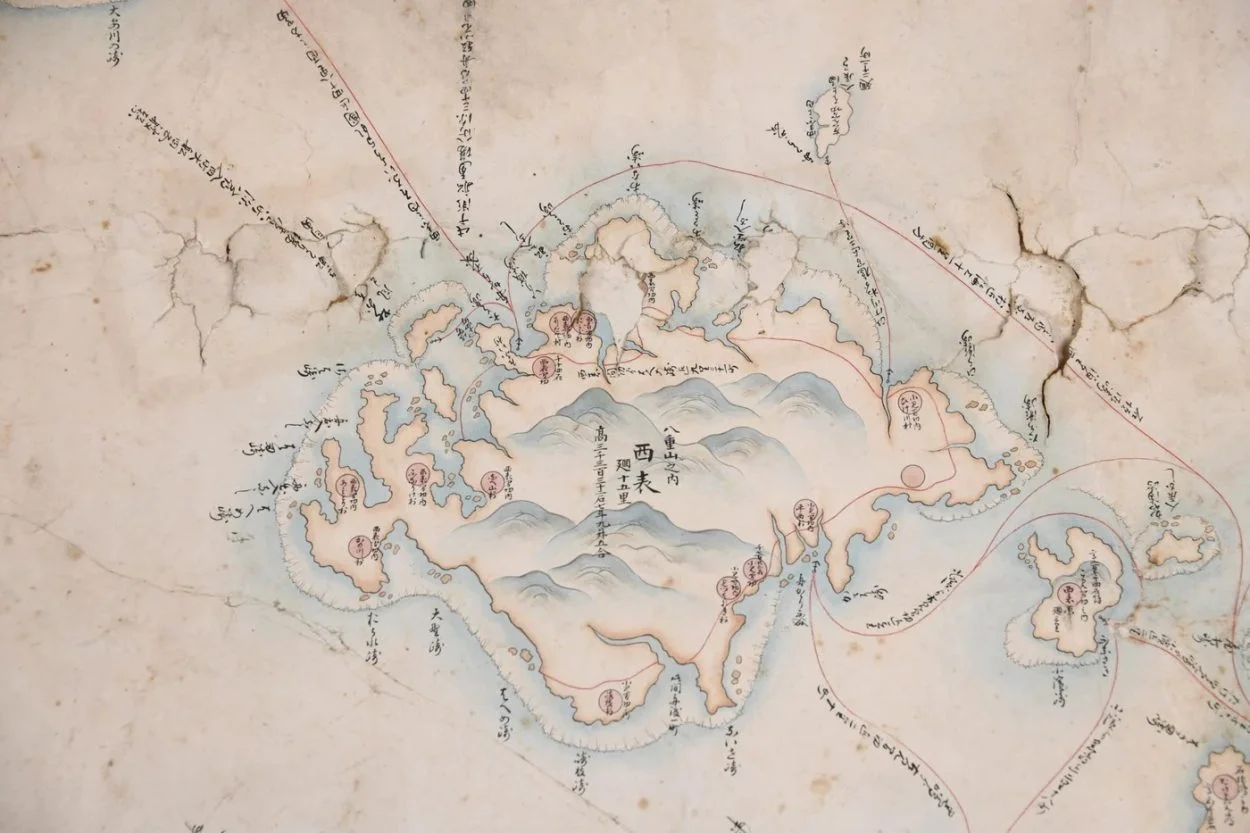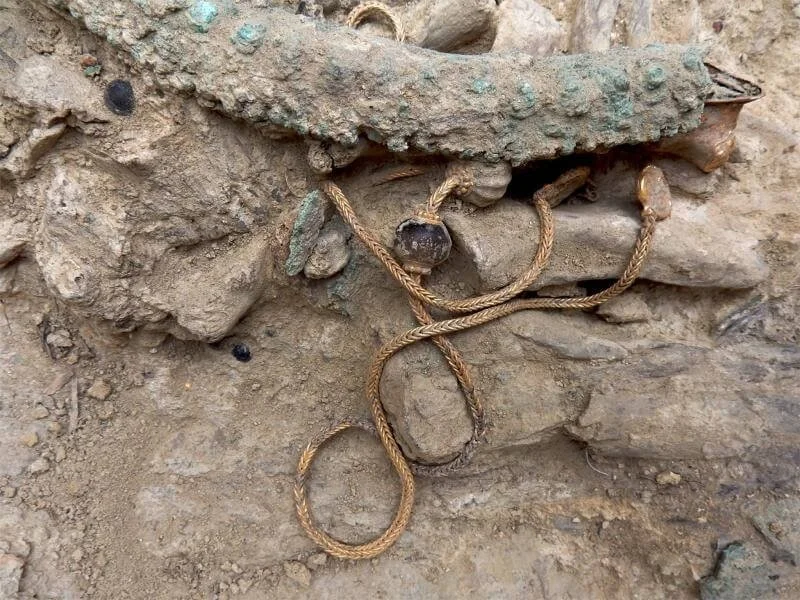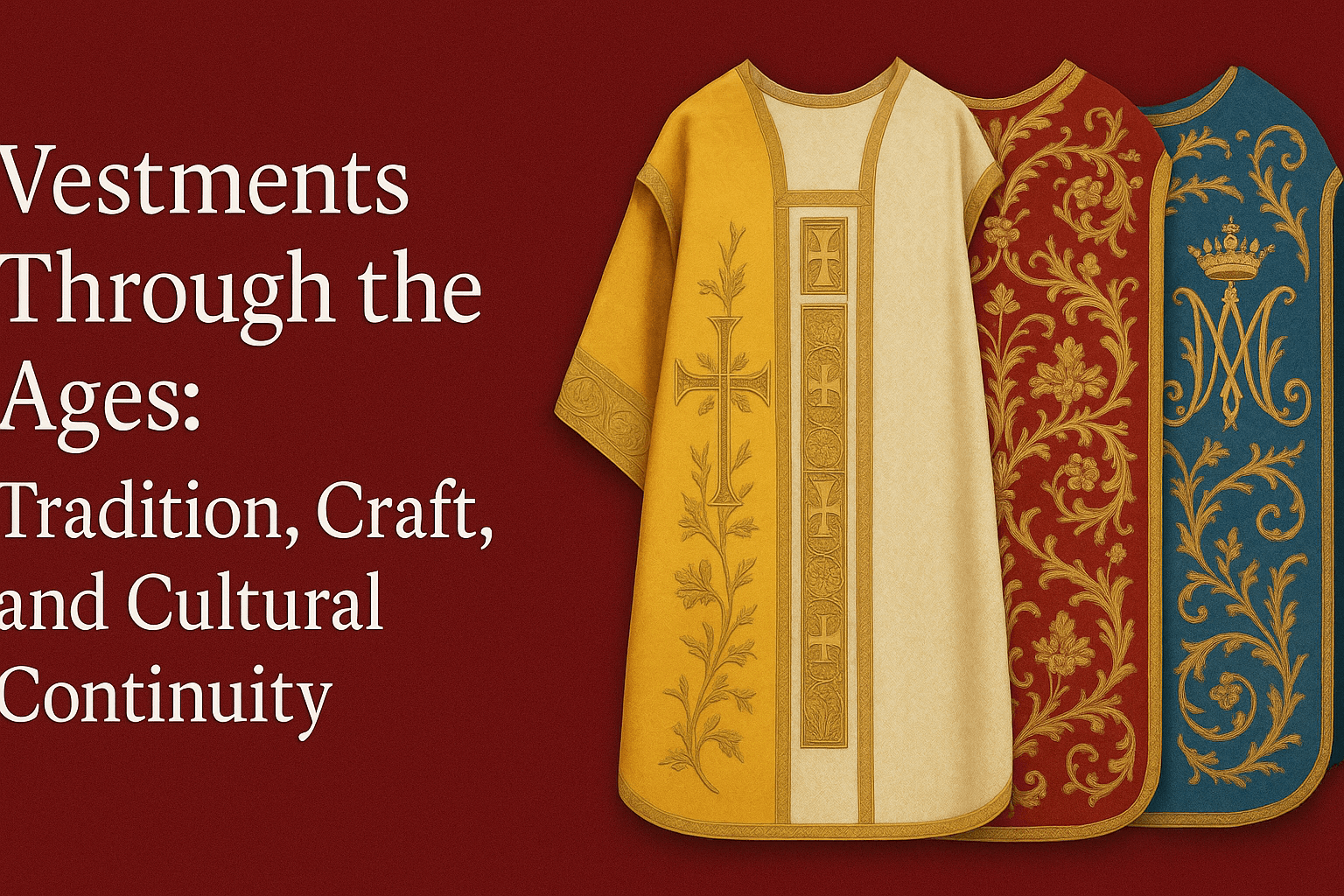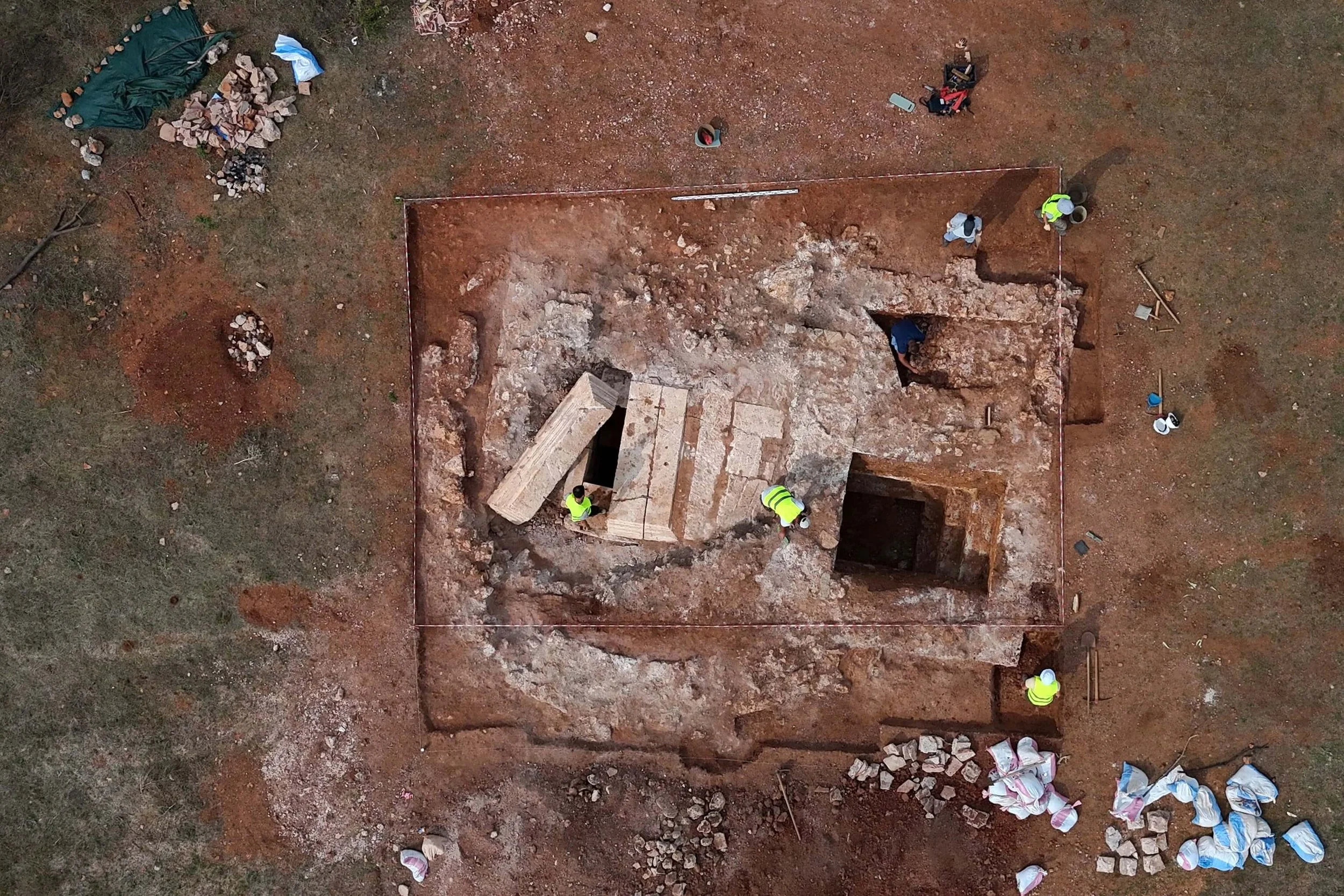An archaeologist's realm is one of unearthing captivating discoveries, yet comprehending the complete significance of these findings isn't always within their grasp. When faced with perplexity, they often seek the expertise of fellow scientists for assistance. However, there remain enigmas beyond scientific aid, leaving us with tantalizing archaeological puzzles, as showcased in this video.
Petra FULL TOUR & HISTORY
Petra, a once-thriving city located in Jordan, was established 7,000 years ago by the Nabataeans, who used it as a trading hub due to its location on commercial routes connecting Gaza, Damascus, the Red Sea, and Persia.
It was eventually taken over by the Romans but became obsolete once the Romans built roads and established new trade routes. The city was abandoned and forgotten until Johann Ludwig Burckhardt, a Swiss man who had heard of a dead city that supposedly held the tomb of the Prophet Aaron, rediscovered it in 1812.
The most iconic structure in Petra is the Treasury, or Al-Khazneh, which is believed to have been the mausoleum of a Nabataean king named Aretas IV and is about 2,000 years old. Its name comes from the legend that the pharaoh and his armies created it by magic as a place to store their treasures before continuing their pursuit of Moses.
The structure has bullet holes from Bedouins who attempted to dislodge the treasure. Petra is known for its Hellenistic architecture, which is not surprising as the Nabataeans traded with many cultures influenced by the Greeks. The city is a testament to the ingenuity of ancient civilizations and is a popular tourist destination today.
This undated photo shows the relics site of a Nestorian monastery in Turpan, northwest China's Xinjiang Uygur Autonomous Region. (Xinhua)
A jade cross was unearthed at a Nestorian relics site in China's Xinjiang region.
In the vast expanse of northwest China's Xinjiang Uygur Autonomous Region lies a hidden gem of historical significance - the relics site of a Nestorian monastery in Turpan. Nestorianism, also known as Jingjiao in Chinese, represents the earliest form of Christianity introduced to China, and the discovery of this monastery unveils a chapter of cultural exchange and integration that transcends borders and centuries.
This undated photo shows a wooden cross discovered at the relics site of a Nestorian monastery in Turpan, northwest China's Xinjiang Uygur Autonomous Region. (Xinhua)
After two years of meticulous excavation, archaeologists unveiled a treasure trove of cultural relics, among which a well-preserved jade cross stands as a testament to the convergence of Nestorianism with local traditions. Liu Wensuo, a professor at Sun Yat-sen University leading the excavation project, emphasized the symbolic significance of the jade cross, highlighting its embodiment of the fusion between Nestorianism and traditional Chinese culture.
Spanning an area of approximately 2,500 square meters, the monastery stands as a remarkable testament to the architectural prowess of its builders. Comprising ritual halls, kitchens, wine cellars, libraries, and storage rooms, this relatively well-preserved structure offers a glimpse into the daily lives and religious practices of its inhabitants during the Tang and Song dynasties.
The journey to unearth this hidden gem traces back to the early 20th century when German explorers first documented the relics site in their reports. Drawing from these historical records, archaeologists in Turpan embarked on a quest to locate the monastery, culminating in the confirmation of its location at the southern foot of the Flaming Mountain.
In a collaborative effort between Sun Yat-sen University, the Xinjiang Institute of Cultural Relics and Archaeology, and the Xinjiang Academy of Turfan Studies, the first archaeological excavation took place from September to December 2021, followed by a second excavation from February to April 2023. These endeavors yielded not only tangible artifacts but also a wealth of historical documents, totaling 871 in number, shedding light on the religious practices and cultural exchanges that once thrived within the monastery's walls.
Liu underscores the rarity of the Nestorian site in Turpan, emphasizing its significance not only within China but on a global scale. The monastery serves as a poignant reminder of the interconnectedness of civilizations and the enduring legacy of cultural exchange.
As each artifact unearthed and document deciphered adds a layer to the tapestry of human history, the Nestorian monastery in Turpan stands as a beacon of cultural heritage, inviting us to delve deeper into the rich tapestry of our shared past. Through such discoveries, we come to appreciate the resilience of human ingenuity and the enduring power of cultural exchange to transcend boundaries and enrich our collective heritage.
Excavations at the Shinfa-Metema 1 archaeological site in the lowlands of northwestern Ethiopia revealed a population of humans that survived the Toba supervolcano eruption 74,000 years ago. (John Kappelman)
How Humans Outlasted a Supervolcano's Wrath 74,000 years ago
74,000 years ago, Earth bore witness to one of its most cataclysmic events - the eruption of the Toba supervolcano, nestled in the heart of Indonesia. For years, scientists have pondered the aftermath of this colossal explosion, debating its impact on early Homo sapiens. Was it an extinction-level event, or did humanity endure, adapting in the face of adversity? Recent findings from the Shinfa-Metema 1 archaeological site in northwestern Ethiopia shed light on this ancient mystery, revealing humanity's resilience in the wake of nature's fury.
The study, published in the prestigious journal Nature, unravels the story of survival etched in microscopic shards of volcanic glass. These minuscule relics, unearthed alongside remnants of ancient civilizations, offer a glimpse into the lives of our ancestors before, during, and after the Toba eruption. Contrary to apocalyptic theories, the evidence suggests that Homo sapiens not only survived but thrived amidst the chaos.
John W. Kappelman Jr., a leading anthropologist from the University of Texas at Austin, spearheaded the excavation efforts at Shinfa-Metema 1. His team's discoveries paint a vivid picture of human adaptation in the face of adversity. Amidst the desolation wrought by Toba's eruption, our forebears displayed remarkable resilience, reshaping their diets to sustain themselves in the arid wastelands of post-eruption Ethiopia.
Stone projectile points provide evidence that humans were using bows and arrows around the Shinfa-Metema 1 site. (Blue Nile Survey Project)
Fish, once a marginal part of their diet, emerged as a crucial source of sustenance as terrestrial resources dwindled. The Shinfa River, reduced to shallow waterholes, became a lifeline for these resourceful hunter-gatherers. Their shift towards piscine fare showcases the ingenuity and adaptability that define Homo sapiens, even in the most unforgiving of environments.
The findings challenge entrenched beliefs about early human migration patterns. Long-held assumptions posited that our ancestors shunned arid landscapes, seeking refuge in more hospitable climes. However, evidence from Shinfa-Metema 1 suggests otherwise. Humans not only endured but traversed these harsh terrains, forging what researchers term as "blue highways" - seasonal watercourses that guided their nomadic journeys across the continent.
Yet, skepticism lingers within the scientific community. Some experts question the extrapolation of findings from Shinfa-Metema 1 to broader migration patterns. Rachel Lupien, a geoscientist from Aarhus University, raises valid concerns about the extrapolation of localized climate data to continental-scale phenomena. Likewise, the notion of "blue highways" as a singular explanation for human migration faces scrutiny, given the diverse ecological landscapes of ancient Africa.
Nevertheless, the significance of Shinfa-Metema 1 extends beyond academic discourse. It offers a poignant reminder of humanity's indomitable spirit in the face of nature's fury. Toba's eruption may have cast a shadow of despair, but it failed to snuff out the flame of human ingenuity. Our ancestors weathered the storm, leaving behind a legacy of resilience that continues to inspire and captivate us today.
As we stand on the shoulders of those who came before us, let us heed the lessons of Shinfa-Metema 1. In the crucible of adversity, humanity has always found a way to endure, to adapt, and to thrive. The story of our survival is etched in the annals of time, a testament to the indomitable spirit that defines us as a species.
100 Ancient Persian Names and Their Meanings
Exploring the Richness of Persian Names: 100 Beautiful Names and Their Meanings
This comprehensive list of 100 ancient Persian names provides a rich tapestry of history, culture, and mythology from one of the world's most storied civilizations. Each name, boldly presented with its meaning, evokes images of legendary rulers, noble warriors, divine beings, and influential figures who shaped the course of Persian history.
From the great conquerors like Cyrus and Darius to the mythical heroes like Rostam and Jamshid, these names resonate with tales of bravery, wisdom, and resilience. Moreover, the inclusion of deities such as Mithra and Anahita highlights the spiritual and religious beliefs that were central to ancient Persian society. Whether drawn from historical records, epic poems, or religious texts, these names serve as a testament to the enduring legacy of the Persian people and their contributions to the world. Through this exploration, one can glimpse into the rich heritage and cultural depth of ancient Persia, where each name carries a story waiting to be discovered and cherished.
Cyrus: Meaning "throne" or "far-sighted." Cyrus the Great founded the Achaemenid Empire and is known for his tolerance and humanitarian policies.
Darius: Meaning "possessor" or "rich." Darius I expanded the Persian Empire to its greatest extent and organized it administratively.
Xerxes: Meaning "ruler over heroes." Xerxes I famously led the Persian invasion of Greece, including the battles of Thermopylae and Salamis.
Artaxerxes: Meaning "the great warrior king." Artaxerxes I, II, and III were notable rulers, with Artaxerxes II presiding over a period of relative stability.
Cambyses: Meaning "protector of the shrine." Cambyses II succeeded his father Cyrus, expanding the empire further into Egypt.
Atossa: Meaning "noble." Atossa was the daughter of Cyrus the Great and wife of Darius the Great, known for her influence.
Roxana: Meaning "little star" or "dawn." Roxana was the wife of Alexander the Great, daughter of a Bactrian nobleman.
Arsaces: Meaning uncertain. Arsaces I founded the Parthian Empire and took the royal name Arsaces.
Mithridates: Meaning "gift of Mithra." Several Persian rulers bore the name Mithridates, known for their resistance against foreign invaders.
Pharnaces: Meaning uncertain. Pharnaces I was a notable ruler of Pontus, known for his military campaigns.
Ariobarzanes: Meaning "exalting the Aryans." Ariobarzanes I was a Persian satrap of Phrygia, known for his loyalty to the Persian Empire.
Bardiya: Meaning uncertain. Bardiya, also known as Smerdis, was a controversial figure in Persian history, with some claiming he was an impostor.
Hystaspes: Meaning uncertain. Hystaspes was the father of Darius the Great and a prominent Persian nobleman.
Mazaeus: Meaning uncertain. Mazaeus was a Persian nobleman who served as satrap of Cilicia under the Achaemenid Empire.
Tigranes: Meaning "tiger." Tigranes II was a king of Armenia who established an independent kingdom.
Orontes: Meaning uncertain. Several Persian noblemen bore the name Orontes, known for their roles in various political events.
Bagadata: Meaning uncertain. Bagadata was a Persian general who served under Darius III during the wars against Alexander the Great.
Phraortes: Meaning uncertain. Phraortes was a king of Media who rebelled against the Assyrian Empire.
Hydarnes: Meaning uncertain. Hydarnes was a Persian nobleman and one of the Seven Persians who conspired to overthrow the Magian usurper, Gaumata.
Masistes: Meaning uncertain. Masistes was a brother of Darius the Great and a notable figure in Persian history.
Memnon: Meaning uncertain. Memnon was a Greek mercenary who served under the Persian Empire during the Greco-Persian Wars.
Mardonius: Meaning uncertain. Mardonius was a Persian general who led the Persian forces against the Greeks at the Battle of Marathon.
Mazares: Meaning uncertain. Mazares was a Persian general who led campaigns against the rebellious Lydians and Ionians.
Megabyzus: Meaning uncertain. Megabyzus was a Persian nobleman and general who played a significant role in various military campaigns.
Nebuchadnezzar: Meaning "Nebo, protect my boundary." Nebuchadnezzar II was a king of Babylon who conquered Jerusalem and exiled the Jews to Babylon.
Narses: Meaning uncertain. Narses was a Persian nobleman who served as a general under the Sassanian Empire.
Pharnabazus: Meaning uncertain. Pharnabazus II was a Persian satrap who played a prominent role in the Peloponnesian War.
Spitamenes: Meaning uncertain. Spitamenes was a Sogdian nobleman who led a rebellion against Alexander the Great in Central Asia.
Tiridates: Meaning "given by the god Tir." Tiridates III was a king of Armenia who converted to Christianity under the influence of Saint Gregory the Illuminator.
Vahyazdata: Meaning uncertain. Vahyazdata was a Persian prince who rebelled against Darius the Great but was ultimately defeated.
Zopyrus: Meaning uncertain. Zopyrus was a Persian nobleman who played a crucial role in the capture of Babylon by Darius the Great.
Zoroaster: Meaning uncertain. Zoroaster was the founder of Zoroastrianism, the ancient Persian religion.
Abradatas: Meaning uncertain. Abradatas was a Persian nobleman known for his loyalty to the Achaemenid kings.
Achaemenes: Meaning uncertain. Achaemenes was a legendary figure in Persian history, considered the ancestor of the Achaemenid dynasty.
Adur Burzen-Mihr: Meaning "victory by fire and Mithra." Adur Burzen-Mihr was a Zoroastrian deity associated with the sun and fire.
Ardumanish: Meaning uncertain. Ardumanish was a Persian nobleman known for his wisdom and counsel to the kings.
Armina: Meaning "from Armenia." Armina was a Persian princess known for her beauty and intelligence.
Artasyras: Meaning uncertain. Artasyras was a Persian nobleman who served as treasurer under the Achaemenid kings.
Aspabes: Meaning uncertain. Aspabes was a Persian general who fought against the Greeks during the Greco-Persian Wars.
Astyages: Meaning uncertain. Astyages was a king of Media who was overthrown by Cyrus the Great, leading to the rise of the Achaemenid Empire.
Avesta: Meaning "holy text." Avesta is the sacred scripture of Zoroastrianism, containing hymns and teachings attributed to Zoroaster.
Bagoas: Meaning "eunuch." Bagoas was a eunuch who rose to power as a favorite of the Persian kings, including Alexander the Great.
Bistun: Meaning uncertain. Bistun is a historical site in Iran where Darius the Great's inscription recounts his rise to power.
Dariush: Meaning "possessor" or "rich." Dariush is a variant of the name Darius, commonly used in Persian culture.
Fravash: Meaning "guardian spirit." Fravash is a term in Zoroastrianism referring to guardian spirits or ancestral souls.
Gaumata: Meaning uncertain. Gaumata was an impostor who claimed to be the brother of Cambyses and briefly usurped the Persian throne.
Gobryas: Meaning uncertain. Gobryas was a Persian nobleman who played a key role in the overthrow of the Babylonian Empire.
Gopatshah: Meaning uncertain. Gopatshah was a Persian king known for his patronage of the arts and architecture.
Harpagus: Meaning uncertain. Harpagus was a Persian general who played a significant role in the overthrow of Astyages and the rise of Cyrus the Great.
Kambujiya: Meaning "protector of the shrine." Kambujiya is a variant of the name Cambyses, commonly used in Persian culture.
Khorasani: Meaning "from Khorasan." Khorasani refers to someone from the region of Khorasan in northeastern Iran, known for its historical significance.
Khurshed: Meaning "sunshine." Khurshed is a Persian name meaning "sun," symbolizing brightness and warmth.
Kusha: Meaning "son of Rama." Kusha was a legendary figure in Persian mythology, considered one of the ancestors of the Persian people.
Mah-Afroz: Meaning "moonlight." Mah-Afroz is a Persian name meaning "moonlight," symbolizing beauty and serenity.
Mithra: Meaning "friend" or "contract." Mithra was a Zoroastrian deity associated with the sun, justice, and oaths.
Nakhchirvan: Meaning uncertain. Nakhchirvan was a Persian king known for his wisdom and justice, celebrated in Persian folklore.
Navid: Meaning "good news" or "announcement." Navid is a Persian name meaning "good news" or "announcement," often given to boys born during auspicious times.
Ormazd: Meaning "wise lord." Ormazd is a variant of the name Ahura Mazda, the supreme deity in Zoroastrianism.
Parsa: Meaning "Persia." Parsa is an ancient name for Persia, referring to the heartland of the Persian Empire.
Parthia: Meaning "land of the Parthians." Parthia was an ancient Iranian kingdom located in northeastern Iran, known for its conflicts with Rome.
Persepolis: Meaning "Persian city." Persepolis was the ceremonial capital of the Achaemenid Empire, known for its impressive architecture and reliefs.
Pirooz: Meaning "victorious." Pirooz is a Persian name meaning "victorious," symbolizing success and triumph.
Rakhsha: Meaning "guardian" or "protector." Rakhsha is a Persian name meaning "guardian" or "protector," often given to strong and courageous individuals.
Rostam: Meaning uncertain. Rostam is a legendary hero in Persian mythology, known for his strength, bravery, and loyalty.
Saman: Meaning "calm" or "tranquil." Saman is a Persian name meaning "calm" or "tranquil," often associated with peace and serenity.
Shapur: Meaning uncertain. Shapur is a Persian name meaning "son of the king," often given to royalty or nobility.
Sogdiana: Meaning "land of the Sogdians." Sogdiana was an ancient Iranian region located in Central Asia, known for its strategic importance.
Sorush: Meaning uncertain. Sorush is a Persian name meaning "messenger" or "angel," often associated with divine guidance and wisdom.
Suren: Meaning uncertain. Suren was a noble family in ancient Persia, known for their loyalty to the Persian kings.
Tahmasp: Meaning "king of the crown." Tahmasp was a Persian king of the Safavid dynasty, known for his patronage of the arts and literature.
Tirdad: Meaning "gift of God." Tirdad is a Persian name meaning "gift of God," symbolizing divine blessings and favor.
Ushahin: Meaning "swift as an eagle." Ushahin is a Persian name meaning "swift as an eagle," often associated with speed and agility.
Vahid: Meaning "unique" or "peerless." Vahid is a Persian name meaning "unique" or "peerless," often given to individuals with exceptional qualities.
Vistahm: Meaning uncertain. Vistahm was a Persian nobleman who rebelled against the Umayyad Caliphate in the early Islamic period.
Yervand: Meaning uncertain. Yervand is a Persian name meaning "young warrior," often given to brave and courageous individuals.
Zarathustra: Meaning "golden camel." Zarathustra is the Persian prophet who founded Zoroastrianism, one of the world's oldest monotheistic religions.
Anahita: Meaning "immaculate" or "untainted." Anahita is a Persian goddess of fertility, water, and wisdom, revered in ancient Persian religion.
Ardashir: Meaning "whose reign is through righteousness." Ardashir I was the founder of the Sassanian Empire, known for his military campaigns and administrative reforms.
Artabanus: Meaning uncertain. Artabanus was a name borne by several Persian kings and noblemen throughout history.
Azarmidokht: Meaning "daughter of the holy spirit." Azarmidokht was a queen of the Sassanian Empire, known for her patronage of Zoroastrianism.
Bahman: Meaning "good mind" or "virtuous thought." Bahman is a Persian name meaning "good mind" or "virtuous thought," often associated with wisdom and intelligence.
Bahram: Meaning "victorious" or "conqueror." Bahram is a Persian name meaning "victorious" or "conqueror," often given to strong and powerful individuals.
Farangis: Meaning uncertain. Farangis is a Persian name meaning "angelic" or "divine," often given to individuals with a serene and graceful presence.
Faravahar: Meaning uncertain. Faravahar is a symbol of Zoroastrianism representing the divine guardian spirit or fravashi.
Farhad: Meaning uncertain. Farhad is a Persian name meaning "happiness" or "joy," often associated with positivity and optimism.
Fariborz: Meaning uncertain. Fariborz is a Persian name meaning "fortunate" or "blessed," often given to individuals with good luck and prosperity.
Farrokh: Meaning uncertain. Farrokh is a Persian name meaning "fortunate" or "auspicious," often associated with positive outcomes and success.
Farrukhzad: Meaning uncertain. Farrukhzad is a Persian name meaning "fortunate" or "blessed," often given to individuals with good fortune and prosperity.
Giv: Meaning uncertain. Giv is a legendary hero in Persian mythology, known for his bravery and valor in battle.
Homayoun: Meaning uncertain. Homayoun is a Persian name meaning "fortunate" or "blessed," often given to individuals with good luck and prosperity.
Hormoz: Meaning uncertain. Hormoz is a Persian name meaning "fortunate" or "auspicious," often associated with positive outcomes and success.
Jamshid: Meaning uncertain. Jamshid is a legendary king in Persian mythology, known for his wisdom and enlightenment.
Khodadad: Meaning "gift of God." Khodadad is a Persian name meaning "gift of God," symbolizing divine blessings and favor.
Khosrow: Meaning uncertain. Khosrow I was a king of the Sassanian Empire, known for his military campaigns and cultural patronage.
Manuchehr: Meaning uncertain. Manuchehr is a legendary king in Persian mythology, known for his wisdom and justice.
Mehrdad: Meaning uncertain. Mehrdad is a Persian name meaning "gift of the sun," symbolizing warmth and brightness.
Mihragan: Meaning uncertain. Mihragan is a Zoroastrian festival celebrating the deity Mithra, associated with the sun and light.
Narsin: Meaning uncertain. Narsin is a Persian name meaning "victorious" or "triumphant," often given to individuals with success and achievement.
Parviz: Meaning uncertain. Parviz is a Persian name meaning "fortunate" or "blessed," often associated with good luck and prosperity.
Sasan: Meaning uncertain. Sasan is a Persian name derived from the Sassanian dynasty, known for its cultural and military achievements.
Each name carries its own significance and history in Persian culture and history. Let me know if you'd like more information on any particular name!
Ötzi the Iceman's tattoos were made using a singular-pointed tool.
Unraveling the mystery behind Ötzi the Iceman's ancient tattoos has long captivated both scientists and historians.
Discovered remarkably preserved in the Italian Alps in 1991, Ötzi's body showcased an intricate array of tattoos adorning his lower back, abdomen, legs, and wrist.
The origin and technique of these tattoos have been subjects of fervent debate and speculation.
Ötzi the Iceman tattoos
Initially, various methods were proposed, ranging from hand poking to subdermal tattooing, hand tapping, and incision, each rooted in its own historical context, adding layers of intrigue to the investigation.
In a groundbreaking study published in the European Journal of Archaeology, an international team, comprising archaeologists, historians, and tattoo artists, embarked on a unique endeavor to unlock the secrets of Ötzi's tattoos.
Their innovative approach involved replicating Ötzi's tattoos on modern skin using each of the proposed methods, providing a tangible insight into ancient tattooing practices.
A tattoo artist volunteered to receive tattoos on his leg, mirroring Ötzi's patterns, employing the four different techniques.
Following the healing process, meticulous comparisons were drawn between the newly created tattoos and Ötzi's ancient markings.
This shows tattoo artist Danny Riday tattooing his own leg using a bone awl made from white-tailed deer (Odocoileus virginianus). This variety of puncture tattooing, colloquially known as "hand poke" or "stick and poke" tattooing, involves the use of a sharp implement either held directly in the hand or hafted to the end of a handle. Credit: European Journal of Archaeology (2024). DOI: 10.1017/eaa.2024.5
The study revealed that tattoos created through the hand-poking method bore the closest resemblance to Ötzi's tattoos. This technique entails using a sharpened stick dipped in ink to pierce the skin, depositing ink with each puncture, resulting in a series of tiny, overlapping disks of ink under the skin.
The precise pattern observed matched Ötzi's tattoos, offering compelling evidence that hand-poking was the preferred method thousands of years ago.
This research not only sheds light on Ötzi's tattooing practices but also underscores the skill and artistry of ancient tattoo artists.
Their adeptness in creating enduring body art with rudimentary tools speaks volumes about the cultural richness of the past.
As we delve deeper into Ötzi's story, we glean invaluable insights into the lives, beliefs, and challenges of ancient societies, enriching our understanding of human history.
The research findings can be found in European Journal of Archaeology.
A Look at 19th Century Men's Gilded Leather Shoes (Harry William Morris boots)
Imagine stepping back in time to the late 1800s, a time when fashion was a spectacle of elegance and extravagance. Among the treasures of this era are the remarkable ankle boots that adorned the feet of stylish gentlemen. Let's take a closer look at a pair of these exquisite shoes.
Harry William Morris shoes. Norfolk, England, Date: c. 1890-1899
Crafted with meticulous attention to detail, these ankle boots are a blend of silvered leather, black silk brocade, and gold gilded accents. The silvered leather forms the vamp and lower quarter of the boots, while the upper quarter is enveloped in a luxurious black silk brocade. This brocade features a woven design of vertical cream lace stripes, adorned with delicate pink alstroemeria flowers.
What truly sets these boots apart is the intricate gilding that adorns them. A floral motif, reminiscent of a daisy with its delicate petals, is meticulously gilded onto the leather. Each flower is offset by a leaf topstitch, adding depth and dimension to the design. The gilding extends from the vamp to the brocade upper, seamlessly joining the two materials together.
Examining the construction of the boots reveals the expertise of their maker. The center front opening, secured by a combination of gold-covered grommets and brass shoe lace hooks, ensures a snug fit. Yellow laces, with matching tassels at each end, add a touch of flair to the ensemble. Meanwhile, the tongue of the boots, crafted from silvered leather and edged in black silk binding, provides additional comfort and support.
Attention to detail is evident even in the smallest elements of the boots. The center back narrows in at the ankle, providing a sleek silhouette. A dark olive green floral silk brocade lines the interior, adding a touch of opulence with every step. Underneath, a brown leather sole, along with a stacked one-inch heel, ensures durability and stability.
Noteworthy are the unique features found on the soles of the boots. The center sole, covered in brown leather, is joined to the front sole with an elongated S-shape, showcasing the craftsmanship of the shoemaker. The heel tip, made of tan leather and adorned with small gold and silver studs, including three gold stars at the inside center, adds a final flourish to these remarkable boots.
Though the label is absent, these boots are attributed to Harry William Morris, both the creator and manufacturer, during the late 19th century. A testament to the skill and artistry of the era, these ankle boots stand as a symbol of a bygone era of elegance and refinement.
How A Fossilized Body Solved A 2,400 Year Old Murder?
Welcome to our exploration of the enigmatic Tollund Man, a figure whose story continues to intrigue archaeologists and scientists alike. Discovered in a bog in the Jutland peninsula during the mid-20th century, the Tollund Man lived during the Iron Age and is believed to have met a fate steeped in religious significance.
While much of the Tollund Man's story remains shrouded in mystery and speculation, the collaborative efforts of both nature and human researchers have yielded fascinating new insights in the decades since his discovery. As we delve into the depths of this captivating tale, we uncover the layers of intrigue surrounding his life and demise.
From the peculiar circumstances of his preservation in the bog to the tantalizing clues offered by his well-preserved remains, the Tollund Man serves as a window into the distant past, offering glimpses of ancient rituals and beliefs. While the exact details of his story may elude us, the ongoing exploration of his legacy continues to shed light on the complexities of Iron Age society and the enduring mysteries of human history.
Join us as we unravel the mysteries of the Tollund Man, piecing together fragments of the past to unlock the secrets of this ancient enigma.
5000 Year Old Book Discovered Underground In Egypt Revealed a Horrifying Message...
In the heart of the captivating Egyptian landscape, archaeologists have unearthed a remarkable discovery that has rocked the foundations of the archaeological community: the 5000-year-old Book of Enoch. This ancient manuscript, steeped in mystery and intrigue, holds within its pages secrets that have captivated scholars and seekers alike.
Enoch, a figure belonging to the seventh generation after Adam, emerges from the shadows of antiquity as a revered individual with a profound connection to the divine. Son of Jared and great-grandfather of Noah, Enoch's name itself, meaning "initiator," hints at his role as a teacher and guide to humanity. Although briefly mentioned in the Old Testament, his legend is rich with enigmas and possibilities.
Some speculate that Enoch may be synonymous with the mysterious Melchizedek, a figure of great importance in biblical narratives. The blending of Christian imagination with scripture often fills the gaps left by the Bible's silence, further adding to Enoch's mystique.
Enoch's legacy extends beyond mere familial ties; he is credited with bringing writing and astrology to humanity, serving as a conduit between mortals and the divine. Regarded as a religious teacher, prophet, and wise mentor, Enoch's influence reverberates through the annals of history.
Early church figures such as Justin Martyr, Athenagoras, and Clement of Alexandria held Enoch in high esteem, even deeming his writings as sacred. His distinctiveness among pre-flood leaders is evident in his comparatively shorter lifespan and his mysterious departure, described simply as being "taken by God." This departure hints at a special relationship and, according to some interpretations, a transcendence into the heavenly realm without experiencing physical death.
To truly comprehend the profound insights and mysteries contained within the Book of Enoch, one must delve into the five volumes attributed to him, embarking on a journey of exploration through its puzzling and astonishing contents. Join us as we unravel the secrets concealed within this ancient text, shedding light on the enduring legacy of Enoch and the timeless wisdom he imparts.
What Was The Earliest Surgery?
In this captivating video, we delve into the intriguing origins of medicine, exploring the fascinating journey of humanity's quest to heal and care for one another. The question of when exactly the practice of medicine began is a complex one, shrouded in the mists of time. Yet, as we embark on this exploration, we uncover the possibility that our innate inclination to heal predates even the emergence of our species.
From the earliest instances of sharing medicinal plants to the pioneering efforts of performing rudimentary surgeries, our ancestors exhibited a profound understanding of the healing arts. As we peel back the layers of history, we discover that the roots of medicine run deep, intertwined with the very fabric of our humanity.
Join us as we embark on a journey through time, unraveling the enigmatic beginnings of medical practice and uncovering the timeless essence of our innate desire to alleviate suffering and promote well-being. It's a story that transcends the boundaries of culture and civilization, reminding us of the enduring legacy of compassion and healing that has shaped our collective human experience.
12 Most Incredible Ancient Treasures and Artifacts Finds
Get ready for an exhilarating adventure, folks, because we're about to embark on a thrilling treasure hunt! Prepare to be transported across the globe as we unveil a mesmerizing array of ancient treasures and artifacts—riches beyond imagination, rarities that defy belief, and wonders that have stood the test of time. From the mysterious depths of history to the farthest reaches of the earth, we'll guide you on a journey like no other.
So fasten your seatbelts and hold on tight, because this is just the beginning of an epic quest filled with forgotten marvels and hidden gems waiting to be discovered. Let the treasure hunt commence!
Stoicism: 12 Stoic Secrets for Doing Your Best
Step into the profound world of Stoicism with us as we embark on a transformative journey, spanning 35 minutes of deep exploration into this ancient philosophy. Stoicism isn't merely about enduring life's trials; it's about embracing them wholeheartedly, turning adversity into opportunity, and transforming our struggles into sources of strength.
Throughout this immersive experience, we will delve into the fundamental principles of Stoicism, offering practical insights and actionable advice to empower you in navigating the complexities of personal trials, professional challenges, and the chaotic nature of everyday life. Learn how to apply Stoic wisdom to live with purpose, integrity, and an unwavering resilience that knows no bounds.
Join us as we unlock the timeless wisdom of Stoicism, guiding you towards a life filled with intention, wisdom, and an unshakeable spirit ready to face any obstacle that comes your way.
The ENTIRE History Of Prostitution
In this documentary, we delve into the origins of prostitution, tracing its roots back to ancient cultures and societies. Dating as far back as 2400 B.C. in ancient Mesopotamia, prostitution was documented as a formalized practice, sanctioned by sacred edicts. This phenomenon, deeply ingrained in tradition, culture, and socio-economic dynamics, evolved alongside civilization, often blurring the boundaries between religious acceptance and societal norms. Factors such as commerce, slavery, and segregation became intertwined, contributing to the complexity of its history.
Over time, the perception and status of prostitution underwent significant changes, sparking debates, shaping laws, and influencing attitudes worldwide. Join us as we embark on a journey through history, unraveling the mysterious origins of prostitution and exploring its enduring impact on societies past and present.
100 Ancient Roman Names and Their Meanings
Roman names carry with them a rich history, often reflecting the cultural, societal, and religious influences of ancient Rome. Whether derived from Latin, Etruscan, Greek, or other sources, each name holds a unique significance. Let's delve into the vast array of Roman names and uncover their meanings:
Male Names:
Marcus - Derived from the Roman god of war, Mars, Marcus means "warlike" or "belonging to Mars."
Lucius - Meaning "light" or "illumination," Lucius was a popular name among ancient Roman families.
Gaius - Pronounced as "Guy-us," Gaius is a classic Roman name meaning "joy" or "rejoicing."
Julius - Famously associated with Julius Caesar, this name means "youthful" or "downy-bearded."
Titus - With roots in Latin, Titus signifies "honorable" or "esteemed."
Octavius - Originating from the word "octavus," meaning "eighth," Octavius was often given to eighth-born sons.
Quintus - Meaning "fifth" in Latin, Quintus was traditionally given to fifth-born sons.
Flavius - Derived from the Latin word "flavus," meaning "blonde" or "golden-haired."
Cassius - Often associated with the Roman politician and general Cassius Longinus, this name means "empty" or "vain."
Severus - Reflecting strength and seriousness, Severus translates to "stern" or "severe."
Tiberius - Named after the Tiber River, Tiberius denotes strength and vitality.
Valerius - Rooted in the Latin word "valere," meaning "to be strong" or "to be worthy."
Fabius - Derived from the Latin word "faba," meaning "bean," Fabius signifies simplicity and humility.
Publius - This name, often shortened to Pub, means "public" or "of the people."
Decimus - Signifying "tenth" in Latin, Decimus was commonly given to tenth-born sons.
Female Names:
Julia - Feminine form of Julius, Julia means "youthful" or "downy-bearded."
Claudia - Derived from the Latin word "claudus," meaning "lame" or "limping."
Cornelia - Meaning "of Cornelius," this name reflects nobility and high birth.
Livia - Associated with the wife of Augustus, Livia translates to "bluish" or "envious."
Octavia - Feminine form of Octavius, Octavia denotes the number "eight" and symbolizes new beginnings.
Aurelia - Derived from the Latin word "aureus," meaning "golden" or "gilded."
Flavia - Feminine form of Flavius, Flavia reflects qualities of fairness and beauty.
Domitia - Associated with the Roman noble family Domitius, Domitia signifies "belonging to the lord" or "master."
Fulvia - Rooted in the Latin word "fulvus," meaning "reddish-yellow" or "tawny."
Marcella - Feminine form of Marcellus, Marcella means "warlike" or "belonging to Mars."
Claudia - Derived from the Latin word "claudus," meaning "lame" or "limping."
Terentia - Associated with the Terentius family, Terentia signifies strength and endurance.
Valeria - Feminine form of Valerius, Valeria reflects strength, valor, and worthiness.
Junia - Derived from the goddess Juno, Junia symbolizes youthfulness and vitality.
Minerva - Named after the Roman goddess of wisdom and warfare, Minerva represents intellect and strategy.
Neutral Names:
Fabia - Feminine form of Fabius, Fabia denotes simplicity and humility.
Marcellus - Meaning "warlike" or "belonging to Mars," Marcellus carries strength and valor.
Claudia - Derived from the Latin word "claudus," meaning "lame" or "limping."
Junius - Derived from the goddess Juno, Junius symbolizes youthfulness and vitality.
Terentius - Associated with the Terentius family, Terentius signifies strength and endurance.
Valerius - Reflecting strength and worthiness, Valerius embodies valor and nobility.
Minervius - Named after the Roman goddess Minerva, Minervius signifies wisdom and strategy.
Flaviana - Feminine form of Flavius, Flaviana represents fairness and beauty.
Tiberia - Feminine form of Tiberius, Tiberia reflects strength and vitality.
Severa - Feminine form of Severus, Severa signifies seriousness and strength.
Surnames:
Antonius - Derived from the Roman family name Antonius, associated with Mark Antony.
Pompeius - Associated with the Roman general and statesman Pompey the Great.
Octavianus - Derived from the name Octavian, associated with the first Roman emperor Augustus.
Crassus - Associated with the Roman politician and general Marcus Licinius Crassus.
Sulla - Associated with the Roman dictator Lucius Cornelius Sulla.
Drusus - Associated with several members of the Julio-Claudian dynasty.
Cassius - Associated with the Roman senator and conspirator Gaius Cassius Longinus.
Brutus - Associated with the Roman senator and assassin Marcus Junius Brutus.
Cicero - Associated with the Roman statesman and orator Marcus Tullius Cicero.
Gracchus - Associated with the Roman tribunes of the plebs Tiberius and Gaius Sempronius Gracchus.
Names Inspired by Roman Mythology:
Apollo - Named after the Greek and Roman god of the sun, music, and prophecy.
Diana - Named after the Roman goddess of the hunt, wilderness, and childbirth.
Venus - Named after the Roman goddess of love, beauty, and fertility.
Jupiter - Named after the king of the gods in Roman mythology.
Neptune - Named after the Roman god of the sea and earthquakes.
Pluto - Named after the Roman god of the underworld.
Mars - Named after the Roman god of war.
Juno - Named after the Roman goddess of marriage and childbirth.
Cupid - Named after the Roman god of desire, erotic love, attraction, and affection.
Mercury - Named after the Roman god of financial gain, commerce, messages, communication, travelers, boundaries, luck, trickery, and thieves.
Names Inspired by Roman Virtues:
Pietas - Derived from the Latin word "pius," meaning "dutiful" or "pious," Pietas signifies respect and devotion to family, country, and the gods.
Honoria - Meaning "honor" or "esteem," Honoria reflects dignity and respectability.
Clementia - Derived from the Latin word "clemens," meaning "merciful" or "gentle," Clementia embodies compassion and leniency.
Fortuna - Named after the Roman goddess of luck and fortune, Fortuna symbolizes chance and fate.
Salus - Meaning "health" or "well-being," Salus represents safety and prosperity.
Concordia - Derived from the Latin word "concordia," meaning "harmony" or "unity," Concordia reflects peace and agreement.
Veritas - Rooted in the Latin word "verus," meaning "true" or "truth," Veritas embodies honesty and authenticity.
Victoria - Named after the Roman goddess of victory, Victoria signifies triumph and success.
Clemens - Derived from the Latin word "clemens," meaning "merciful" or "gentle," Clemens embodies compassion and kindness.
Gratia - Rooted in the Latin word "gratus," meaning "grace" or "gratitude," Gratia represents charm and thankfulness.
Laetitia - Meaning "joy" or "happiness," Laetitia reflects cheerfulness and delight.
Constantia - Derived from the Latin word "constans," meaning "steadfast" or "constant," Constantia signifies perseverance and resilience.
Prudentia - Meaning "prudence" or "foresight," Prudentia represents wisdom and discretion.
Justus - Derived from the Latin word "iustus," meaning "just" or "fair."
Fidelis - Rooted from the Latin word "fides," meaning "faithful" or "loyal," Fidelis embodies trustworthiness and allegiance.
Names Inspired by Nature:
Flora - Named after the Roman goddess of flowers and spring, Flora symbolizes fertility and renewal.
Sylvanus - Derived from the Latin word "silva," meaning "forest" or "woods," Sylvanus signifies a connection to nature.
Aurora - Named after the Roman goddess of dawn, Aurora represents the first light of day and new beginnings.
Caelum - Meaning "sky" or "heaven," Caelum embodies the vastness and beauty of the celestial realm.
Terra - Rooted in the Latin word "terra," meaning "earth" or "land," Terra symbolizes the grounding and nurturing qualities of the planet.
Oceanus - Named after the Titan god of the ocean, Oceanus signifies the vastness and power of the sea.
Aether - Derived from the Greek word "aither," meaning "upper air" or "ether," Aether represents the pure air breathed by the gods.
Ignatius - Meaning "fiery" or "ardent," Ignatius reflects the transformative power of fire.
Aurora - Named after the Roman goddess of dawn, Aurora represents the first light of day and new beginnings.
Palma - Rooted in the Latin word "palma," meaning "palm tree" or "victory," Palma symbolizes triumph and resilience.
Names Inspired by Occupations and Titles:
Pontius - Derived from the Latin word "pontifex," meaning "bridge-builder" or "bridge-maker," Pontius signifies a bridge builder or bridge keeper.
Sacerdos - Meaning "priest" or "sacred," Sacerdos reflects a religious or spiritual leader.
Senator - Derived from the Latin word "senatus," meaning "council of elders," Senator signifies a member of the Roman Senate.
Praetor - Rooted in the Latin word "praetor," meaning "leader" or "commander," Praetor signifies a magistrate or judge in ancient Rome.
Centurion - Named after the Roman military officer in charge of a century (a unit of soldiers), Centurion symbolizes leadership and authority.
Augur - Derived from the Latin word "augur," meaning "diviner" or "prophet," Augur signifies a religious official who interpreted omens and signs.
Consul - Named after the highest elected political office in ancient Rome, Consul represents a chief magistrate or consul.
Tribune - Derived from the Latin word "tribunus," meaning "leader of a tribe," Tribune signifies an elected official or magistrate who represented the interests of the plebeians.
Magister - Meaning "master" or "teacher," Magister reflects a person of authority or expertise in a particular field.
Gladiator - Named after the professional fighters who entertained audiences in Roman arenas, Gladiator signifies strength and prowess in combat.
Names Inspired by Colors:
Rufus - Derived from the Latin word "rufus," meaning "red-haired" or "red-colored," Rufus symbolizes strength and vitality.
Candidus - Rooted in the Latin word "candidus," meaning "white" or "bright," Candidus signifies purity and clarity.
Flavius - Derived from the Latin word "flavus," meaning "blonde" or "golden-haired," Flavius represents warmth and radiance.
Aurelius - Derived from the Latin word "aureus," meaning "golden" or "gilded," Aurelius signifies wealth and prosperity.
Cinnabar - Named after the bright red mineral, Cinnabar symbolizes intensity and passion.
From the majestic names inspired by gods and goddesses to the humble names reflecting virtues and nature, Roman names offer a glimpse into the diverse and vibrant culture of ancient Rome. Whether honoring ancestors, bestowing blessings, or simply expressing admiration for the natural world, each name carries a unique story and significance, enriching the tapestry of Roman history and tradition.
This circular natural feature (the so-called Richat Structure in the Sahara Desert) was once a major prehistoric tool-making and hunting centre for Homo erectus
( Nasa)
A groundbreaking discovery dating back 1.6 million years challenges our existing knowledge of human evolution.
Humans have always been storytellers. Weaving tales, exchanging knowledge, and planning for the future are quintessentially human endeavors that have shaped the course of our species. But when did this remarkable ability to communicate through language first emerge? Recent research suggests a far earlier origin than previously thought, shedding light on the fascinating journey of human evolution.
Dr. Steven Mithen, an esteemed archaeologist from the University of Reading, has delved deep into the annals of prehistory to uncover the roots of human speech. Contrary to conventional wisdom, which pegged the advent of language to around 200,000 years ago, Mithen's groundbreaking analysis suggests a much more ancient beginning—approximately 1.6 million years ago, in the cradle of humanity, somewhere nestled in the vast expanse of eastern or southern Africa.
In his quest to unveil the origins of language, Mithen meticulously examined a plethora of evidence spanning archaeology, genetics, neurology, and linguistics. The culmination of his research paints a vivid picture of our ancestors' journey towards spoken communication.
Central to Mithen's findings is the pivotal role played by our evolving brains. As our cranial capacity expanded over millennia, so too did the intricacies of our neural architecture. One key milestone was the emergence of Broca's area—an enigmatic region nestled within the frontal lobe, believed to be the epicenter of language production and comprehension. This cognitive leap paved the way for our ancestors to transcend primitive gestures and embark on the transformative journey of verbal expression.
Cranial capacity of members of the human lineage
The increase in hominin cranial capacity over time.
But the evolution of language was not a solitary endeavor. It was intricately woven into the fabric of our species' survival and adaptation. The emergence of bipedalism, coupled with cranial changes, heralded a shift in the configuration of our vocal tract—laying the foundation for articulate speech. Language, it seems, was nature's answer to the challenges posed by our relatively feeble physiques. Through coordinated hunting and communal living, early humans leveraged the power of speech to conquer the wilderness and thrive in diverse environments.
The archaeological record serves as a silent witness to this evolutionary saga. From the storied landscapes of Tanzania's Olduvai Gorge to the windswept expanses of the Sahara, traces of our ancestors' ingenuity and linguistic prowess endure. Sophisticated stone tools, passed down through generations, attest to the transmission of knowledge—a testament to the transformative power of language in shaping human destiny.
But what of the language itself? Mithen postulates that the linguistic landscape of our ancestors was a far cry from the rich tapestry of modern tongues. Rather, it comprised a rudimentary lexicon of sounds and gestures, gradually evolving to accommodate the complexities of human interaction. Yet, amidst this linguistic primordial soup, echoes of our distant past resonate. Mithen suggests that the roots of modern languages may trace back to those ancient murmurs—words that sought to encapsulate the essence of the world around us.
As we peer through the mists of time, Mithen's research invites us to ponder the profound legacy of our linguistic ancestors. Their quest for communication laid the groundwork for the rich tapestry of human culture and civilization that we inhabit today. From the campfires of our ancient ancestors to the digital realms of the 21st century, the human tongue remains an enduring symbol of our shared humanity—a testament to the indomitable spirit of curiosity and innovation that defines us as a species.
In the grand tapestry of human history, the story of language is but a single thread—one that binds us across continents and millennia. As we unravel the mysteries of our past, let us not forget the humble origins of our most cherished gift—the gift of speech.
In crafting this narrative, we embark on a journey of discovery—a journey that transcends the boundaries of time and space, uniting us in our quest for understanding. For in the whispers of our ancestors, we find echoes of our own humanity—a reminder that, despite the passage of ages, the essence of who we are remains unchanged.
The Astonishing Discovery of Must Farm Settlement
In the tranquil expanse of the East Anglian Fens lies a treasure trove of history waiting to be unearthed. The recent excavation of the Must Farm settlement has sent shockwaves through the archaeological community, offering a rare glimpse into the daily lives of our Bronze Age ancestors nearly 3,000 years ago.
Thousands of items were excavated at the site. Credit: Cambridge Archaeological Unit
Led by the Cambridge Archaeological Unit of the University of Cambridge and funded by Historic England, this groundbreaking project has unearthed an unparalleled collection of artefacts that has historians buzzing with excitement. Nestled between Peterborough and Whittlesey in Cambridgeshire, the Must Farm settlement stands as a testament to human ingenuity and resilience in the face of adversity.
Archaeologists excavating the site. Credit: Cambridge Archaeological Unit
What sets Must Farm apart is its exceptional preservation. The site, dubbed 'Peterborough’s Pompei' due to its remarkable similarity to the ancient Roman city, offers an unprecedented window into Bronze Age life. The discovery of circular wooden houses built on stilts over water has captured the imagination of researchers and enthusiasts alike, shedding new light on the architectural sophistication of our ancestors.
Fragment of textile. Credit: Cambridge Archaeological Unit
But it is not just the structures themselves that have captivated attention. The artefacts unearthed at Must Farm paint a vivid picture of daily life in the Bronze Age. From wooden objects and pottery vessels to fibre and textile items, each find offers a glimpse into the customs and traditions of a bygone era. Rare personal items, such as exotic glass beads and finely decorated textiles, speak to the artistic prowess of Bronze Age artisans.
Socketed axehead with haft. Credit: Cambridge Archaeological Unit
Yet, perhaps the most poignant discovery of all is the human element. Embedded within the layers of sediment are the footprints of those who once called Must Farm home. These Bronze Age footprints offer a tangible connection to the past, bridging the gap between ancient civilizations and the present day.
For Duncan Wilson, Chief Executive of Historic England, the discoveries at Must Farm are nothing short of astonishing. They not only enrich our understanding of the Bronze Age but also forge a direct link to communities from the past. Through meticulous research and analysis, archaeologists have peeled back the layers of time, revealing a world that is more sophisticated and complex than previously imagined.
As David Gibson, Archaeological Manager of the Cambridge Archaeological Unit, aptly puts it, Must Farm provides a glimpse of prehistoric archaeology in three dimensions. The breadth of scientific research conducted at the site offers invaluable insight into the lives of our ancestors, allowing us to piece together the puzzle of human history with unprecedented clarity.
In the heart of the East Anglian Fens, Must Farm stands as a testament to the resilience of the human spirit and the enduring quest for knowledge. As archaeologists continue to sift through the remnants of the past, we are reminded of the timeless allure of discovery and the boundless mysteries that lie waiting to be uncovered.
Must Farm reconstruction. Credit: Cambridge Archaeological Unit
Groundbreaking Find on Easter Island May Rewrite History
Nestled amidst the vast expanse of the southeastern Pacific Ocean, Easter Island, or Rapa Nui, stands as a testament to human resilience and ingenuity. Home to the iconic moai statues that have captivated the imagination of generations, this remote island harbors secrets that defy conventional understanding. Among these mysteries lies the enigmatic script of Rongorongo—a linguistic puzzle that has long confounded archaeologists and historians alike.
For centuries, scholars have grappled with the origins of Rongorongo, debating whether it was a product of indigenous innovation or influenced by external forces. Now, a groundbreaking study offers tantalizing clues that may rewrite the narrative of Easter Island's history.
Led by Dr. Silvia Ferrara of the University of Bologna, Italy, the study employs radiocarbon dating to examine the age of four Rongorongo tablets. The results are nothing short of astonishing: one of the tablets, dating back to 1493 to 1509, predates the arrival of Europeans on the island in the 1720s. This revelation challenges long-held assumptions and suggests the possibility of an independent invention of writing—a feat rarely observed in human history.
The implications of this discovery are profound. If Rongorongo indeed originated prior to external contact, it would stand as a testament to the creativity and intellectual prowess of the Rapa Nui people. Far from being isolated or primitive, they would emerge as pioneers in the development of written language—a milestone comparable to the achievements of ancient civilizations such as Mesopotamia, Egypt, and China.
However, the journey towards unraveling the mysteries of Rongorongo is fraught with challenges and uncertainties. The limitations of radiocarbon dating, coupled with the scarcity of available samples, underscore the complexity of the task at hand. While the discovery of pre-European evidence is a significant step forward, it represents only a fraction of the larger puzzle.
To truly understand the origins of Rongorongo, further exploration and analysis are imperative. Yet, the remaining tablets, scattered across the globe, remain elusive and inaccessible. As researchers endeavor to piece together the fragments of Easter Island's past, they are met with a profound sense of urgency—to preserve and honor the legacy of a civilization that defied the odds and left an indelible mark on human history.
In the midst of uncertainty, one thing remains clear: the story of Rongorongo is far from over. It is a narrative that transcends time and space, weaving together the threads of human curiosity and resilience. As we embark on this journey of discovery, we are reminded of the enduring power of exploration—to illuminate the shadows of the past and uncover the truths that lie hidden beneath the surface.
Easter Island, with its towering statues and cryptic scripts, beckons us to delve deeper into its mysteries—to embrace the unknown and venture into uncharted territories of knowledge. In doing so, we pay homage to the spirit of discovery that defines our shared human experience and reaffirms our connection to the ancient civilizations that paved the way for our journey through time.
The 1000-year-old brain of an individual excavated from a churchyard in Ypres, Belgium. The folds of the tissue, which are still soft and wet, are stained orange with iron oxides
Alexandra L. Morton-Hayward
Human Brains Kept Intact for Millennia
In the annals of history, tales of mystery and intrigue often linger, shrouded in enigmatic circumstances that challenge our understanding of the past. Among these mysteries lies the curious case of naturally preserved human brains, defying the ravages of time for thousands of years. From sunken shipwrecks to waterlogged graves, these remarkable discoveries have left researchers perplexed, prompting a quest for answers that delves into the very essence of our biological makeup.
Dr. Alexandra Morton-Hayward, a pioneering researcher at the University of Oxford, embarked on a journey fueled by curiosity and scientific inquiry. Drawing from her experiences as an undertaker, where she witnessed the rapid decomposition of the human brain, Morton-Hayward was captivated by instances where brains defied the odds and remained remarkably intact.
Her fascination led to the first systematic study of preserved human brains, culminating in the creation of a comprehensive database encompassing over 4,400 cases worldwide. Yet, amidst the wealth of data, a puzzling pattern emerged: in over 1,300 instances, brains stood alone as the sole surviving soft tissue, defying conventional explanations.
While known preservation processes account for the integrity of soft tissues in many cases, they fall short in explaining the resilience of brains in isolation. The prevailing hypothesis suggests that certain circumstances catalyze the formation of stable molecules within the brain, resisting degradation long after death. This phenomenon, akin to mechanisms observed in neurodegenerative diseases, offers a tantalizing glimpse into the complexities of brain aging and decay.
The implications of Morton-Hayward's research extend far beyond the realm of archaeology, offering potential insights into the mysteries of dementia and cognitive decline. By unraveling the secrets of preserved brains, scientists may unlock invaluable clues to understanding the mechanisms underlying brain health and longevity.
Yet, amidst the excitement of discovery, challenges persist. Preserved brains often masquerade as soil, overlooked and discarded during archaeological excavations. This oversight underscores the importance of raising awareness among researchers and fostering a deeper appreciation for the hidden treasures that lie beneath the earth's surface.
Alexandra Morton-Hayward holding a 1000-year-old preserved brain
Graham Poulter
As Morton-Hayward's groundbreaking study ushers in a new era of exploration, the echoes of preserved brains resonate with the echoes of history itself. Each discovery offers a tantalizing glimpse into the lives of those who came before us, a testament to the resilience of the human spirit in the face of the unknown.
In the end, the mystery of preserved human brains serves as a reminder of the boundless wonders that await those who dare to venture into the depths of the past. With each revelation, we inch closer to unraveling the enigma that has captivated the imagination of generations, shedding light on the mysteries that lie hidden beneath the sands of time.
Rubbing of a Zhou dynasty bronze inscription, c. 825 BC
100 Ancient CHINESE Names And Their Meanings
Unveiling Ancient Chinese Heritage: 100 Names with Significance and History
Ancient Chinese names are imbued with profound meanings, reflecting the culture, beliefs, and aspirations of generations past. Let's embark on a journey through the annals of Chinese history as we explore the significance and backstory of 100 captivating names:
Liu (柳)
Meaning: Willow
Symbolism: Grace and resilience akin to the willow tree's bending but not breaking in the wind.
Historical Context: A common surname in China, borne by numerous historical figures, including Liu Bang, founder of the Han Dynasty.
Wei (伟)
Meaning: Great, Mighty
Symbolism: Strength, prominence, and grandeur.
Historical Context: Wei is both a surname and a given name, associated with emperors, generals, and scholars throughout Chinese history.
Zhang (张)
Meaning: Stretch, Open Up
Symbolism: Expansion, growth, and reaching new horizons.
Historical Context: Zhang is one of the most common surnames in China and is found across various regions and ethnic groups.
Li (李)
Meaning: Plum
Symbolism: Purity, perseverance, and vitality, as plum blossoms herald the arrival of spring.
Historical Context: Li is one of the most prevalent surnames in China and has a long history, with notable bearers such as Li Bai, a renowned poet of the Tang Dynasty.
Chen (陈)
Meaning: Old, Ancient
Symbolism: Tradition, history, and enduring legacy.
Historical Context: Chen is a common surname in China, with roots tracing back to ancient times. It's associated with prominent figures in politics, literature, and art.
Wang (王)
Meaning: King, Monarch
Symbolism: Authority, leadership, and royal lineage.
Historical Context: Wang is both a surname and a title, often associated with emperors and kings throughout Chinese history. It's also a common surname among the Han Chinese.
Zhao (赵)
Meaning: Morning, Sunrise
Symbolism: New beginnings, optimism, and the dawn of a new day.
Historical Context: Zhao is a prominent surname in China, with a history dating back to ancient times. It's associated with several dynasties and renowned historical figures.
Huang (黄)
Meaning: Yellow, Golden
Symbolism: Wealth, prosperity, and the imperial color.
Historical Context: Huang is a widespread surname in China, often associated with the ruling class and noble families. It's also symbolic of the fertile Yellow River basin.
Xu (徐)
Meaning: Slowly, Gentle
Symbolism: Patience, tranquility, and a gentle demeanor.
Historical Context: Xu is a common surname in China, with roots in ancient times. It's associated with scholars, artists, and officials known for their refined manners.
Yang (杨)
Meaning: Poplar Tree
Symbolism: Resilience, flexibility, and vitality.
Historical Context: Yang is a widespread surname in China, symbolizing strength and adaptability. It's associated with notable individuals in various fields, including military, literature, and philosophy.
Zhou (周)
Meaning: Circumference, Encircle
Symbolism: Harmony, inclusivity, and all-encompassing unity.
Historical Context: Zhou is both a surname and the name of a significant dynasty in Chinese history. It's associated with ancient rituals, philosophy, and governance systems.
Sun (孙)
Meaning: Grandson, Descendant
Symbolism: Continuation of family legacy, filial piety, and ancestral reverence.
Historical Context: Sun is a common surname in China, representing familial ties and the perpetuation of lineage. It's borne by numerous historical figures, scholars, and statesmen.
Lin (林)
Meaning: Forest, Grove
Symbolism: Abundance, vitality, and the interconnectedness of nature.
Historical Context: Lin is a prevalent surname in China, reflecting the country's diverse landscapes and natural beauty. It's associated with poets, painters, and philosophers inspired by the natural world.
He (何)
Meaning: What, How
Symbolism: Curiosity, introspection, and the quest for understanding.
Historical Context: He is a common surname in China, borne by scholars, philosophers, and thinkers known for their inquisitive minds and analytical prowess.
Gao (高)
Meaning: Tall, High
Symbolism: Ambition, aspiration, and the pursuit of excellence.
Historical Context: Gao is a widespread surname in China, symbolizing lofty ideals and high achievements. It's associated with scholars, officials, and military commanders renowned for their achievements.
Xiao (萧)
Meaning: Filial Piety, Respect
Symbolism: Reverence for parents, family values, and Confucian ethics.
Historical Context: Xiao is both a surname and a given name, embodying the Confucian virtue of filial piety. It's associated with individuals known for their devotion to family and moral integrity.
Liang (梁)
Meaning: Beam, Bridge
Symbolism: Support, connection, and bridging divides.
Historical Context: Liang is a common surname in China, reflecting the importance of infrastructure and community bonds. It's associated with engineers, architects, and leaders known for their role in building bridges, both literal and metaphorical.
Cheng (程)
Meaning: Journey, Process
Symbolism: Progress, development, and the passage of time.
Historical Context: Cheng is a prevalent surname in China, representing the journey of life and the pursuit of goals. It's associated with scholars, bureaucrats, and merchants known for their diligence and perseverance.
Deng (邓)
Meaning: Lamp, Lantern
Symbolism: Illumination, enlightenment, and guiding light.
Historical Context: Deng is a common surname in China, reflecting the importance of light in dispelling darkness and ignorance. It's associated with scholars, teachers, and spiritual leaders known for their wisdom and insight.
Hu (胡)
Meaning: Barbarian, Foreign
Symbolism: Diversity, cultural exchange, and global perspective.
Historical Context: Hu is a widespread surname in China, often associated with ethnic minorities and foreign origins. It's symbolic of China's multicultural heritage and its openness to outside influences.
Fang (方)
Meaning: Square, Direction
Symbolism: Order, structure, and a clear sense of purpose.
Historical Context: Fang is a common surname in China, reflecting the importance of organization and planning. It's associated with architects, geomancers, and strategists known for their ability to navigate complex situations.
Shi (石)
Meaning: Stone, Rock
Symbolism: Strength, stability, and enduring resilience.
Historical Context: Shi is a prevalent surname in China, symbolizing the solid foundation upon which society is built. It's associated with artisans, masons, and philosophers known for their steadfastness and unwavering principles.
Zhu (朱)
Meaning: Vermilion, Cinnabar
Symbolism: Vitality, passion, and creative energy.
Historical Context: Zhu is a common surname in China, often associated with scholars, artists, and officials. It's symbolic of the vibrant hues of nature and the human spirit's capacity for transformation.
Cao (曹)
Meaning: Mound, Grave
Symbolism: Ancestral reverence, respect for the departed, and the cyclical nature of life.
Historical Context: Cao is a widespread surname in China, reflecting the importance of honoring one's ancestors. It's associated with rituals, ceremonies, and family traditions passed down through generations.
Han (韩)
Meaning: Korea, Korean
Symbolism: Historical ties with the Korean peninsula, cultural exchange, and diplomacy.
Historical Context: Han is both a surname and a reference to the ancient state of Han, which had close relations with Korea. It's associated with scholars, diplomats, and traders involved in cross-border interactions.
Guan (关)
Meaning: Pass, Frontier
Symbolism: Boundaries, defense, and vigilance.
Historical Context: Guan is a common surname in China, often associated with military commanders and frontier regions. It's symbolic of the need to safeguard borders and protect against external threats.
Luo (罗)
Meaning: Net, Mesh
Symbolism: Connection, interdependence, and the intricate web of relationships.
Historical Context: Luo is a prevalent surname in China, representing the interconnectedness of society and the bonds that unite individuals. It's associated with traders, merchants, and community leaders known for their networking skills.
Yu (余)
Meaning: Surplus, Remainder
Symbolism: Abundance, excess, and the blessings of prosperity.
Historical Context: Yu is a common surname in China, reflecting the notion of surplus wealth and resources. It's associated with affluent families, entrepreneurs, and philanthropists known for their generosity and largesse.
Jiang (江)
Meaning: River, Waterway
Symbolism: Flow, adaptability, and the cycle of life.
Historical Context: Jiang is a widespread surname in China, often associated with regions traversed by rivers and watercourses. It's symbolic of the vital role that water plays in sustaining life and facilitating trade and transportation.
Feng (冯)
Meaning: Gallop, Charge
Symbolism: Swiftness, agility, and the pursuit of goals with determination.
Historical Context: Feng is a common surname in China, often associated with equestrian skills and military prowess. It's symbolic of the speed and efficiency with which individuals can overcome obstacles and achieve success.
Chu (楚)
Meaning: Clear, Distinct
Symbolism: Clarity of purpose, lucidity, and unambiguous intentions.
Historical Context: Chu is both a surname and the name of an ancient state known for its distinct culture and traditions. It's associated with poets, philosophers, and strategists known for their clear-sightedness and strategic acumen.
Qian (钱)
Meaning: Money, Wealth
Symbolism: Prosperity, affluence, and material abundance.
Historical Context: Qian is a prevalent surname in China, often associated with successful merchants and financiers. It's symbolic of the economic prosperity and commercial prowess that have characterized Chinese society for centuries.
Pan (潘)
Meaning: Stream, Brook
Symbolism: Tranquility, serenity, and the gentle flow of water.
Historical Context: Pan is a common surname in China, often associated with regions blessed with abundant water resources. It's symbolic of the soothing and calming influence that nature exerts on the human spirit.
Zeng (曾)
Meaning: Once, Formerly
Symbolism: Past accomplishments, experiences, and ancestral heritage.
Historical Context: Zeng is a widespread surname in China, often associated with venerable lineages and esteemed ancestors. It's symbolic of the rich tapestry of history and tradition that shapes individuals' identities and aspirations.
Xie (谢)
Meaning: Thank, Gratitude
Symbolism: Appreciation, acknowledgment, and reciprocity.
Historical Context: Xie is a common surname in China, often associated with expressions of gratitude and goodwill. It's symbolic of the importance of cultivating harmonious relationships and fostering mutual respect within society.
Liao (廖)
Meaning: Distant, Remote
Symbolism: Exploration, discovery, and the allure of the unknown.
Historical Context: Liao is a prevalent surname in China, often associated with frontier regions and distant territories. It's symbolic of the adventurous spirit and pioneering mindset that have propelled individuals to seek new horizons and expand the boundaries of human knowledge.
Wu (吴)
Meaning: Military, Warrior
Symbolism: Strength, courage, and martial prowess.
Historical Context: Wu is both a surname and the name of an ancient kingdom renowned for its military might. It's associated with generals, warriors, and strategists known for their valor and battlefield achievements.
Tang (唐)
Meaning: Reflecting the Tang Dynasty
Symbolism: Cultural flourishing, prosperity, and golden age.
Historical Context: Tang is both a surname and a reference to one of China's most illustrious dynasties. It's associated with poets, scholars, and statesmen who flourished during this period of cultural renaissance and economic prosperity.
Zhong (钟)
Meaning: Bell, Clock
Symbolism: Order, discipline, and the passage of time.
Historical Context: Zhong is a common surname in China, often associated with timekeeping and the regulation of daily life. It's symbolic of the need for structure and organization in society, as well as the rhythm and cadence of daily existence.
Yuan (袁)
Meaning: Field, Land
Symbolism: Fertility, abundance, and agricultural prosperity.
Historical Context: Yuan is a prevalent surname in China, often associated with rural landscapes and agrarian lifestyles. It's symbolic of the symbiotic relationship between humanity and the land, as well as the cycle of planting, growth, and harvest that sustains civilization.
Xu (旭)
Meaning: Rising Sun, Dawn
Symbolism: New beginnings, optimism, and the promise of a bright future.
Historical Context: Xu is a common surname in China, often associated with the radiant glow of the morning sun. It's symbolic of the endless possibilities and opportunities that each new day brings, as well as the hope and optimism that accompany the dawn of a new era.
Lu (鲁)
Meaning: Simple, Humble
Symbolism: Modesty, humility, and down-to-earth values.
Historical Context: Lu is a widespread surname in China, often associated with individuals known for their unassuming demeanor and straightforward manner. It's symbolic of the importance of humility and modesty in personal conduct and social interactions.
Xing (兴)
Meaning: Prosper, Flourish
Symbolism: Growth, development, and the realization of potential.
Historical Context: Xing is a common surname in China, often associated with individuals known for their entrepreneurial spirit and enterprising mindset. It's symbolic of the dynamic energy and vitality that drive progress and innovation in society.
Jin (金)
Meaning: Gold, Metal
Symbolism: Wealth, fortune, and material abundance.
Historical Context: Jin is a prevalent surname in China, often associated with prosperity and opulence. It's symbolic of the enduring allure of precious metals and the desire for financial security and stability.
Tian (田)
Meaning: Field, Farmland
Symbolism: Agricultural abundance, fertility, and the bounty of nature.
Historical Context: Tian is a common surname in China, often associated with rural landscapes and agrarian lifestyles. It's symbolic of the fundamental role that agriculture plays in sustaining human civilization and ensuring food security for future generations.
Shen (沈)
Meaning: Sink, Submerge
Symbolism: Depth, introspection, and inner contemplation.
Historical Context: Shen is a widespread surname in China, often associated with individuals known for their reflective nature and contemplative mindset. It's symbolic of the need to delve beneath the surface and explore the hidden depths of the human psyche.
Zheng (郑)
Meaning: Correct, Upright
Symbolism: Integrity, righteousness, and moral rectitude.
Historical Context: Zheng is a common surname in China, often associated with individuals known for their upstanding character and adherence to ethical principles. It's symbolic of the importance of honesty and probity in personal conduct and public life.
Yao (姚)
Meaning: Handsome, Elegant
Symbolism: Grace, beauty, and refined aesthetics.
Historical Context: Yao is a prevalent surname in China, often associated with individuals known for their striking appearance and dignified bearing. It's symbolic of the enduring appeal of physical attractiveness and the cultivation of inner and outer beauty.
Hou (侯)
Meaning: Marquis, Nobleman
Symbolism: Nobility, prestige, and social status.
Historical Context: Hou is a common surname in China, often associated with aristocratic families and high-ranking officials. It's symbolic of the hierarchical nature of traditional Chinese society and the importance of rank and title in determining one's place in the social order.
Zhuang (庄)
Meaning: Village, Hamlet
Symbolism: Community, cooperation, and rural life.
Historical Context: Zhuang is a widespread surname in China, often associated with agrarian communities and rural settlements. It's symbolic of the close-knit bonds that exist within traditional villages and the communal spirit that sustains rural life.
Su (苏)
Meaning: Revive, Awaken
Symbolism: Vitality, renewal, and rejuvenation.
Historical Context: Su is a common surname in China, often associated with individuals known for their resilience and adaptability. It's symbolic of the human capacity to overcome adversity and emerge stronger and more resilient than before.
Xuan (宣)
Meaning: Proclaim, Declare
Symbolism: Communication, expression, and advocacy.
Historical Context: Xuan is a prevalent surname in China, often associated with individuals known for their persuasive rhetoric and compelling arguments. It's symbolic of the power of words to inspire, motivate, and effect positive change in society.
Qin (秦)
Meaning: Reflecting the Qin Dynasty
Symbolism: Strength, unity, and centralization.
Historical Context: Qin is both a surname and a reference to one of China's most influential dynasties. It's associated with Emperor Qin Shi Huang, who unified China and laid the foundation for imperial rule. It's symbolic of the consolidation of power and the establishment of a centralized state.
Gong (公)
Meaning: Public, Official
Symbolism: Service, duty, and civic responsibility.
Historical Context: Gong is a common surname in China, often associated with individuals known for their public service and contributions to society. It's symbolic of the importance of collective welfare and the fulfillment of one's obligations to the community.
Shi (世)
Meaning: Generation, World
Symbolism: Continuity, legacy, and posterity.
Historical Context: Shi is a widespread surname in China, often associated with individuals known for their enduring influence and lasting impact on society. It's symbolic of the intergenerational transmission of knowledge, values, and cultural traditions that shape the world we inhabit.
Hua (华)
Meaning: Splendid, Magnificent
Symbolism: Elegance, beauty, and refined aesthetics.
Historical Context: Hua is a common surname in China, often associated with individuals known for their artistic talents and cultural refinement. It's symbolic of the enduring appeal of beauty and the pursuit of aesthetic perfection in all aspects of life.
Fang (方)
Meaning: Square, Direction
Symbolism: Order, structure, and a clear sense of purpose.
Historical Context: Fang is a common surname in China, often associated with individuals known for their analytical mind and systematic approach to problem-solving. It's symbolic of the need for organization and planning in navigating the complexities of modern life.
Wen (文)
Meaning: Literature, Culture
Symbolism: Scholarship, education, and intellectual pursuits.
Historical Context: Wen is a prevalent surname in China, often associated with individuals known for their literary achievements and cultural contributions. It's symbolic of the enduring legacy of Chinese civilization and the importance of preserving and transmitting cultural heritage.
Zheng (正)
Meaning: Correct, Upright
Symbolism: Integrity, righteousness, and moral rectitude.
Historical Context: Zheng is a common surname in China, often associated with individuals known for their adherence to ethical principles and moral values. It's symbolic of the importance of honesty and probity in personal conduct and public affairs.
Xiao (肖)
Meaning: Resemble, Similar
Symbolism: Affinity, kinship, and familial resemblance.
Historical Context: Xiao is a common surname in China, often associated with individuals known for their striking resemblance to their ancestors or famous relatives. It's symbolic of the enduring bonds of family and the continuity of lineage across generations.
Qiang (强)
Meaning: Strong, Powerful
Symbolism: Strength, resilience, and fortitude.
Historical Context: Qiang is a prevalent surname in China, often associated with individuals known for their physical prowess and indomitable spirit. It's symbolic of the human capacity to overcome adversity and emerge stronger and more resilient than before.
Yi (易)
Meaning: Easy, Simple
Symbolism: Adaptability, flexibility, and the ability to navigate change with ease.
Historical Context: Yi is a common surname in China, often associated with individuals known for their pragmatic approach to life and their ability to find simple solutions to complex problems. It's symbolic of the importance of versatility and adaptability in navigating the challenges of modern society.
Ding (丁)
Meaning: Nail, Male
Symbolism: Stability, reliability, and masculinity.
Historical Context: Ding is a common surname in China, often associated with individuals known for their steadfastness and unwavering commitment to duty. It's symbolic of the role of men as the pillars of society and the protectors of family and community.
Yuan (原)
Meaning: Original, Primitive
Symbolism: Authenticity, purity, and genuineness.
Historical Context: Yuan is a widespread surname in China, often associated with individuals known for their unpretentious nature and unvarnished sincerity. It's symbolic of the timeless appeal of simplicity and the enduring value of authenticity in human relationships.
Xiang (翔)
Meaning: Soar, Fly
Symbolism: Freedom, aspiration, and the pursuit of lofty goals.
Historical Context: Xiang is a common surname in China, often associated with individuals known for their adventurous spirit and bold ambitions. It's symbolic of the human desire to transcend earthly limitations and reach for the stars.
Zhu (诸)
Meaning: All, Various
Symbolism: Inclusivity, diversity, and comprehensiveness.
Historical Context: Zhu is a prevalent surname in China, often associated with individuals known for their broad-mindedness and inclusive outlook. It's symbolic of the interconnectedness of all things and the unity that underlies diversity in human society.
Gao (高)
Meaning: Tall, High
Symbolism: Aspiration, ambition, and the pursuit of excellence.
Historical Context: Gao is a common surname in China, often associated with individuals known for their lofty ideals and high achievements. It's symbolic of the human capacity to rise above adversity and reach for the highest peaks of success.
Chu (楚)
Meaning: Clear, Distinct
Symbolism: Clarity of thought, lucidity, and transparency.
Historical Context: Chu is a prevalent surname in China, often associated with individuals known for their straightforwardness and directness. It's symbolic of the importance of honesty and openness in interpersonal relationships and public affairs.
Qiu (秋)
Meaning: Autumn, Fall
Symbolism: Maturity, harvest, and the wisdom of experience.
Historical Context: Qiu is a common surname in China, often associated with individuals known for their depth of character and seasoned judgment. It's symbolic of the natural cycle of life and the inevitability of change and transition.
Jia (家)
Meaning: Home, Family
Symbolism: Belonging, security, and the bonds of kinship.
Historical Context: Jia is a prevalent surname in China, often associated with individuals known for their strong sense of familial duty and responsibility. It's symbolic of the importance of family ties and the nurturing environment of the home in shaping one's identity and values.
Ren (任)
Meaning: Duty, Responsibility
Symbolism: Commitment, obligation, and trustworthiness.
Historical Context: Ren is a common surname in China, often associated with individuals known for their reliability and dependability. It's symbolic of the importance of fulfilling one's obligations and living up to the expectations of others in personal and professional life.
Jin (晋)
Meaning: Advance, Progress
Symbolism: Growth, development, and upward mobility.
Historical Context: Jin is a prevalent surname in China, often associated with individuals known for their ambition and drive for success. It's symbolic of the human desire to advance and improve oneself, as well as the collective progress of society as a whole.
Huang (皇)
Meaning: Emperor, Royal
Symbolism: Sovereignty, authority, and majesty.
Historical Context: Huang is a common surname in China, often associated with individuals of noble lineage and royal descent. It's symbolic of the divine right of kings and the unassailable power of the ruling class in ancient Chinese society.
Quan (全)
Meaning: Whole, Complete
Symbolism: Integrity, wholeness, and unity.
Historical Context: Quan is a widespread surname in China, often associated with individuals known for their holistic approach to life and work. It's symbolic of the interconnectedness of all things and the unity that underlies diversity in the natural world.
Cheng (成)
Meaning: Accomplish, Achieve
Symbolism: Success, fulfillment, and the realization of goals.
Historical Context: Cheng is a common surname in China, often associated with individuals known for their achievements and contributions to society. It's symbolic of the human capacity to overcome obstacles and attain greatness through hard work and perseverance.
Guo (国)
Meaning: Country, Nation
Symbolism: Patriotism, allegiance, and national pride.
Historical Context: Guo is a prevalent surname in China, often associated with individuals known for their loyalty to the homeland and dedication to its prosperity and well-being. It's symbolic of the enduring bond between the people and the nation-state, as well as the collective identity that unites citizens in common purpose.
Mao (茅)
Meaning: Thatch, Straw
Symbolism: Simplicity, humility, and modesty.
Historical Context: Mao is a common surname in China, often associated with individuals known for their unpretentious lifestyle and down-to-earth values. It's symbolic of the rustic charm of rural life and the enduring appeal of simplicity in an increasingly complex world.
Cui (崔)
Meaning: High, Lofty
Symbolism: Aspiration, ambition, and the pursuit of excellence.
Historical Context: Cui is a prevalent surname in China, often associated with individuals known for their high ideals and lofty goals. It's symbolic of the human capacity to reach for the stars and achieve greatness through perseverance and determination.
Lin (林)
Meaning: Forest, Woods
Symbolism: Abundance, vitality, and the interconnectedness of nature.
Historical Context: Lin is a common surname in China, often associated with individuals known for their affinity with the natural world and their commitment to environmental stewardship. It's symbolic of the rich biodiversity of forests and the importance of preserving ecosystems for future generations.
Lan (蓝)
Meaning: Blue, Indigo
Symbolism: Tranquility, serenity, and inner peace.
Historical Context: Lan is a prevalent surname in China, often associated with individuals known for their calm demeanor and serene disposition. It's symbolic of the soothing influence of the color blue and its association with the boundless expanse of the sky and the depths of the ocean.
Zou (邹)
Meaning: Drunk, Intoxicated
Symbolism: Ecstasy, euphoria, and liberation from worldly concerns.
Historical Context: Zou is a common surname in China, often associated with individuals known for their carefree spirit and joie de vivre. It's symbolic of the transcendental experience of losing oneself in the moment and embracing the spontaneity of life.
Zhuo (卓)
Meaning: Outstanding, Remarkable
Symbolism: Excellence, distinction, and the pursuit of perfection.
Historical Context: Zhuo is a prevalent surname in China, often associated with individuals known for their exceptional talents and extraordinary achievements. It's symbolic of the human capacity to surpass ordinary limits and attain greatness through diligence and dedication.
Dai (戴)
Meaning: Wear, Put On
Symbolism: Acceptance, embrace, and incorporation into one's identity.
Historical Context: Dai is a common surname in China, often associated with individuals known for their inclusive attitude and willingness to accommodate others. It's symbolic of the importance of embracing diversity and welcoming people from all walks of life into the fabric of society.
Shao (邵)
Meaning: High, Elevated
Symbolism: Aspiration, ambition, and the pursuit of excellence.
Historical Context: Shao is a prevalent surname in China, often associated with individuals known for their lofty goals and high ideals. It's symbolic of the human capacity to reach for the stars and strive for greatness, regardless of the obstacles encountered along the way.
Zhuang (庄)
Meaning: Manor, Village
Symbolism: Community, cooperation, and rural tranquility.
Historical Context: Zhuang is a common surname in China, often associated with agrarian lifestyles and rural settlements. It's symbolic of the close-knit bonds that exist within traditional villages and the sense of belonging that comes from being part of a tight-knit community.
Gong (龚)
Meaning: Offer, Present
Symbolism: Generosity, benevolence, and the spirit of giving.
Historical Context: Gong is a prevalent surname in China, often associated with individuals known for their philanthropy and charitable endeavors. It's symbolic of the altruistic impulse to share one's blessings with others and make a positive impact on the world.
Han (韩)
Meaning: Reflecting the Han Dynasty
Symbolism: Prosperity, cultural flourishing, and imperial legacy.
Historical Context: Han is a common surname in China, often associated with individuals of noble lineage and prestigious ancestry. It's symbolic of the golden age of Chinese civilization and the enduring legacy of the Han Dynasty, which laid the foundation for centuries of cultural and political dominance.
Chu (初)
Meaning: Beginning, First
Symbolism: New beginnings, fresh starts, and the promise of potential.
Historical Context: Chu is a prevalent surname in China, often associated with individuals embarking on new endeavors or ventures. It's symbolic of the excitement and anticipation that come from starting a journey and the sense of optimism that accompanies the prospect of unexplored possibilities.
Ren (仁)
Meaning: Benevolence, Kindness
Symbolism: Compassion, empathy, and the golden rule.
Historical Context: Ren is a common surname in China, often associated with individuals known for their altruistic spirit and humanitarian values. It's symbolic of the Confucian ideal of ren, which emphasizes the importance of empathy, kindness, and mutual respect in human relationships.
Dong (董)
Meaning: Monitor, Supervise
Symbolism: Oversight, vigilance, and responsible leadership.
Historical Context: Dong is a prevalent surname in China, often associated with individuals entrusted with positions of authority and supervision. It's symbolic of the importance of good governance and the need for conscientious leaders who prioritize the welfare of their constituents.
Yang (洋)
Meaning: Ocean, Sea
Symbolism: Vastness, expansiveness, and boundless potential.
Historical Context: Yang is a common surname in China, often associated with individuals drawn to the sea and maritime pursuits. It's symbolic of the allure of the ocean and the adventurous spirit of those who venture into uncharted waters in search of new horizons.
Xiao (晓)
Meaning: Dawn, Daybreak
Symbolism: New beginnings, hope, and the promise of a fresh start.
Historical Context: Xiao is a prevalent surname in China, often associated with individuals known for their optimistic outlook and sunny disposition. It's symbolic of the dawn of a new day and the sense of anticipation that comes from greeting each morning with renewed enthusiasm and vitality.
Fu (富)
Meaning: Wealth, Abundance
Symbolism: Prosperity, affluence, and material well-being.
Historical Context: Fu is a common surname in China, often associated with individuals blessed with abundant resources and financial security. It's symbolic of the desire for material success and the pursuit of wealth as a means of ensuring comfort and security for oneself and one's loved ones.
Xu (许)
Meaning: Allow, Permit
Symbolism: Permission, authorization, and granting of wishes.
Historical Context: Xu is a prevalent surname in China, often associated with individuals known for their generosity and magnanimity. It's symbolic of the spirit of giving and the willingness to make concessions in order to accommodate the needs and desires of others.
Chen (陈)
Meaning: Old, Ancient
Symbolism: Tradition, heritage, and the passage of time.
Historical Context: Chen is a common surname in China, often associated with venerable lineages and esteemed ancestors. It's symbolic of the rich tapestry of history and tradition that shapes individuals' identities and aspirations.
Yang (杨)
Meaning: Willow, Poplar
Symbolism: Flexibility, resilience, and the ability to bend without breaking.
Historical Context: Yang is a prevalent surname in China, often associated with individuals known for their adaptability and resourcefulness. It's symbolic of the supple strength of the willow tree and the resilience of the human spirit in the face of adversity.
Gao (高)
Meaning: Tall, High
Symbolism: Aspiration, ambition, and the pursuit of excellence.
Historical Context: Gao is a common surname in China, often associated with individuals known for their lofty goals and high ideals. It's symbolic of the human capacity to rise above ordinary limitations and strive for greatness in all endeavors.
Zhang (张)
Meaning: Stretch, Extend
Symbolism: Expansion, growth, and the unfolding of potential.
Historical Context: Zhang is a prevalent surname in China, often associated with individuals known for their expansive vision and far-reaching influence. It's symbolic of the limitless possibilities that arise from stretching oneself beyond conventional boundaries and exploring new frontiers of knowledge and experience.
Liang (梁)
Meaning: Beam, Bridge
Symbolism: Connection, bridging divides, and fostering unity.
Historical Context: Liang is a common surname in China, often associated with individuals known for their ability to bring people together and build bridges across cultural, social, and political divides. It's symbolic of the importance of dialogue and understanding in overcoming differences and forging harmonious relationships within society.
He (何) - Meaning: What, Why - Symbolism: Inquiry, curiosity, and the pursuit of knowledge. - Historical Context: He is a prevalent surname in China, often associated with individuals known for their inquisitive nature and intellectual curiosity. It's symbolic of the human desire to understand the mysteries of the universe and unlock the secrets of existence through exploration and discovery.
FBI Returns Japanese Stolen Treasures Home
Lost Treasures Rediscovered: FBI Returns Okinawan Artifacts Home
Image Credit : Federal Bureau of Investigation (FBI)
In a remarkable turn of events, a cache of 22 cultural treasures from Okinawa, Japan, has been unearthed in an unexpected location – an attic in Massachusetts, USA. The discovery, made possible through the diligent efforts of the FBI, has sparked international attention and serves as a poignant reminder of the importance of preserving cultural heritage.
The story began in January 2023, when Special Agent Geoffrey J. Kelly of the FBI Boston Field Office received a tip about a collection of Asian art hidden in a private residence. It was a revelation that would lead to the recovery of priceless artifacts dating back centuries.
Among the treasures were six exquisitely painted scrolls from the 18th and 19th centuries, already cataloged in the National Stolen Art File, alongside a 19th-century hand-drawn map of Okinawa, and a variety of pottery and ceramics. Yet, perhaps the most significant find was a typewritten letter, shedding light on the origins of the cache.
According to Kelly, the artifacts were looted during the tumultuous final days of World War II, when valuable treasures and historical documents of the Ryukyu Kingdom were plundered during the Battle of Okinawa. These artifacts, he emphasized, hold immense cultural and historical significance, serving as tangible links to Okinawa's rich heritage and identity.
"A nation's cultural identity is really summed up in the artifacts and the history," remarked Kelly, underscoring the importance of preserving cultural patrimony. "Without it, you're taking away their history. And the surest way to eliminate a culture is to eliminate their past."
Following meticulous investigation and collaboration with the National Museum of Asian Art, the FBI facilitated the proper packaging and repatriation of the artifacts to Okinawa Prefecture, Japan. In a symbolic gesture of reconciliation, Denny Tamaki, the Governor of Okinawa Prefecture, received the artifacts in an official handover ceremony.
Jodi Cohen, special agent in charge of FBI Boston, expressed gratitude to the Massachusetts family who came forward with the treasures, highlighting the vital role of public awareness in recognizing and reporting stolen art. "We'd like to thank the family from Massachusetts who did the right thing in reaching out to us and relinquishing these treasures," she said, "so we could return them to the people of Japan."
The recovery of these lost treasures serves as a poignant reminder of the enduring value of cultural heritage and the importance of safeguarding it for future generations. As the artifacts find their way back to their rightful home, they carry with them the stories and memories of a bygone era, ensuring that the legacy of Okinawa's rich cultural heritage lives on.

